TV Placement Options on Kitchen with Photos
Television has long replaced the radio receiver in the development of this process and has become a visually and emotionally central point for information. In turn, design offered the most favorable options for visual perception of images.
Features of Choosing a TV for the Kitchen
Choosing a television for the kitchen has several distinctive features:
Specialized models with more durable and moisture-resistant screens made of tempered glass are available for kitchen spaces;
The size of the television receiver directly depends on the room's dimensions: an optimal screen diagonal for a small kitchen (up to 8 sq. m) is in the range of 19 inches (up to 50 cm), for a large kitchen (over 10 sq. m) – more than 20 inches (around 90 cm);
The optimal viewing angle for a dining room is 170°. While some LCD screens can boast such characteristics, they are not widely available at a reasonable price;
HD Ready, Full HD with Smart TV features, Wi-Fi, and 3D are considered excessive for a kitchen space and an unnecessarily expensive option more suitable for a living room or bedroom;
The volume of the television receiver should match a space with high noise levels;
An integrated digital tuner will help reduce clutter from unnecessary cables;
A USB port provides the ability to view family photos, select and watch video instructions for cooking dishes;
It is important to remember that according to safety standards and comfort guidelines, the distance from the eyes to the screen should be 3 to 4 times the diagonal length of the device.
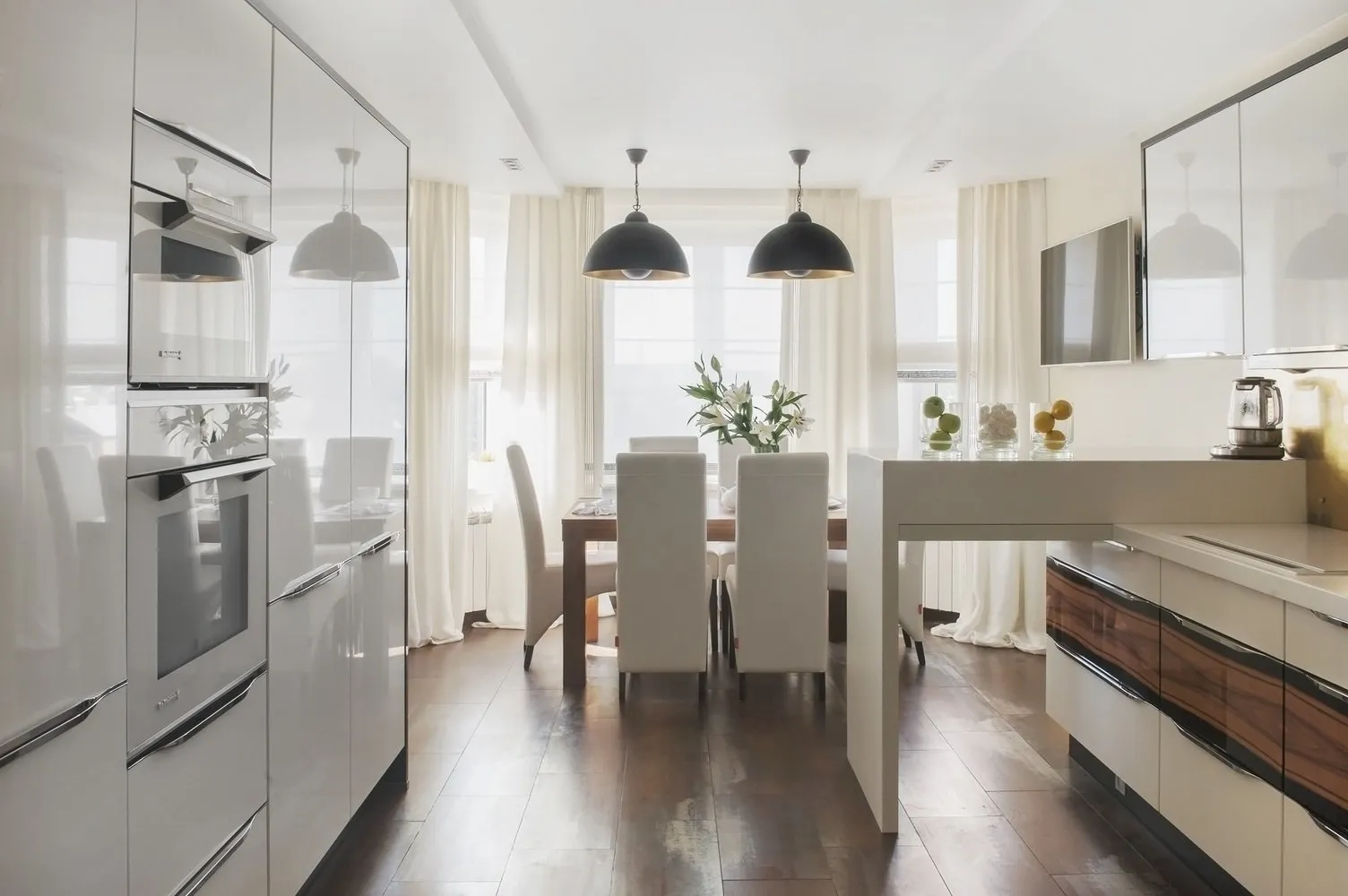
Where to Place a TV on the Kitchen
The television receiver can be placed on a surface (on the countertop, sideboard, dining table), mounted on the wall with a rotating mechanism, built into special niches (cabinet, furniture, exhaust hood, above the refrigerator), or installed on adjustable and rotating devices.
The television should be placed away from fire, water, steam, and vapors from the stove.
In a small kitchen, the distance to the screen should be 1.5 meters; in a large one – 2.5 meters.
It is not a good idea to place the television directly on the refrigerator, washing machine, or microwave oven: vibrations and electromagnetic radiation can affect signal quality and device longevity.
The optimal placement is at eye level, which prevents neck and back strain when watching the screen.
For cottages, CRT TVs (electrostatic tubes) remain relevant. They take up more space and usually require a special shelf or TV stand.
Photo: TV Zone in a Studio Apartment
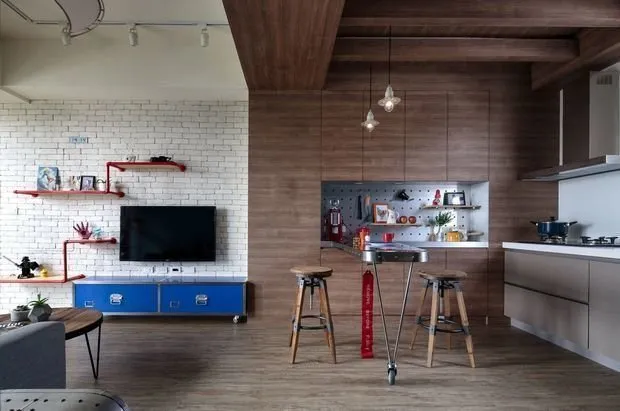
Photo: TV in a Spacious Dining Room
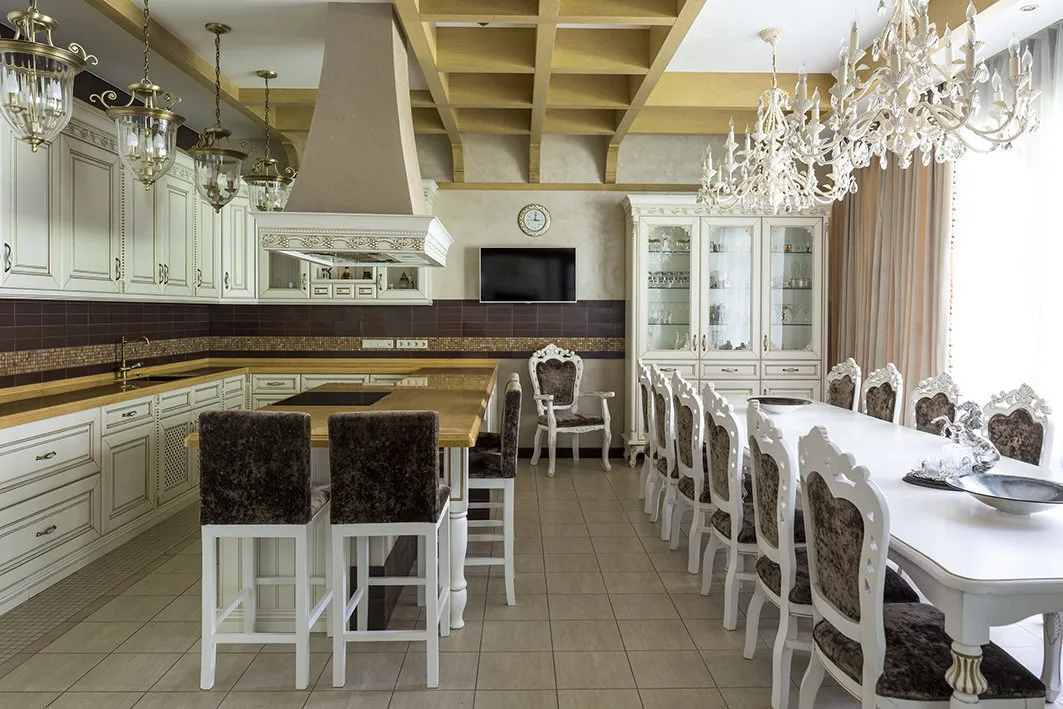
Photo: Wall Decoration with TV Receiver
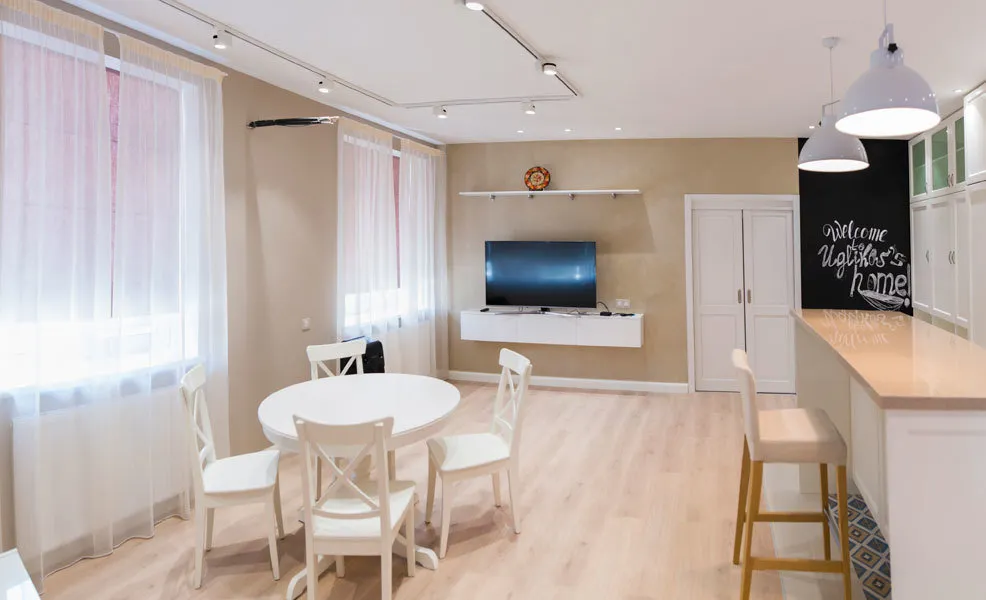
Recommendations by Alexei Belov
Photo: TV Placement in a Corner Kitchen
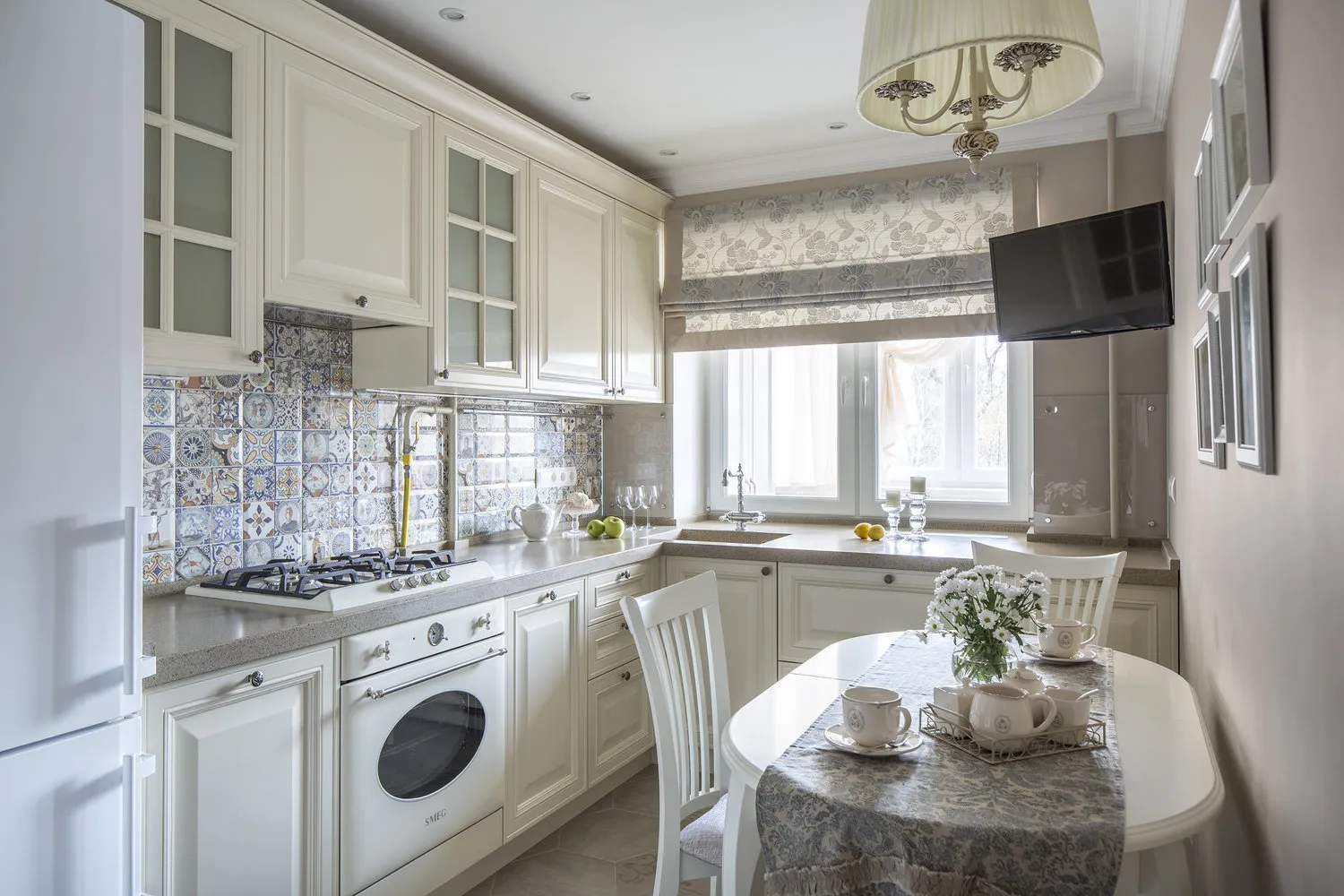
Design by Tatiana Fabrichnaya, Studio 'Dekotrend'
In the Kitchen Cabinet
Placing a TV receiver in a kitchen cabinet in an embedded form is considered rational and low-maintenance. TVs are also placed under upper cabinets or instead of one of them, mounted on the splash guard, or set on the countertop. The last option is less practical since it takes up space that is needed for comfortable food preparation, especially on a small kitchen. It's very convenient to plan a special niche during the designer's project phase for the cabinet. If this wasn't possible, one can remove a door from a cabinet and install the TV in the freed space. If the device is light, it can also be mounted on one of the cabinet doors.
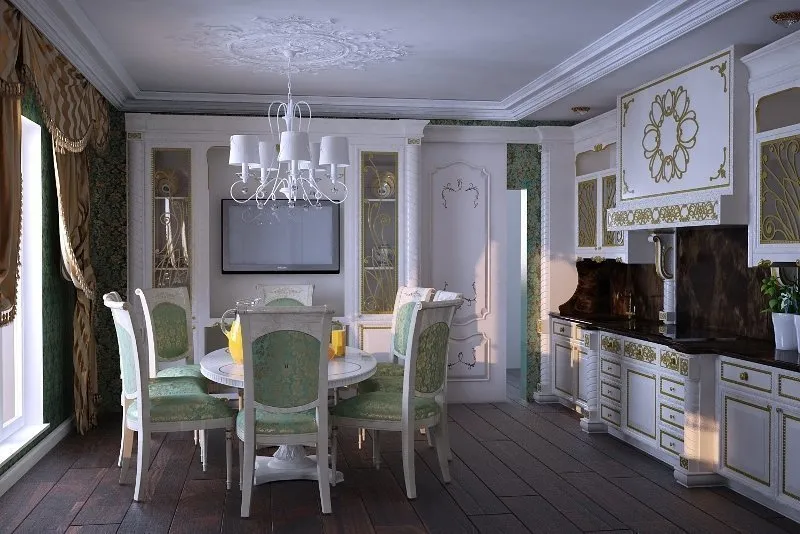
On the Wall
A TV is mounted on the wall using a bracket or a special rotating mechanism that allows adjusting angles of rotation and tilt. This is particularly relevant for LCD TVs with a small viewing angle for optimal image quality. LED screens are more advanced and correspondingly more expensive. They are less dependent on the rotating mechanism and consume significantly less electricity.
It is not advisable to mount the TV directly against the wall. Like any electrical appliance, it requires proper ventilation.
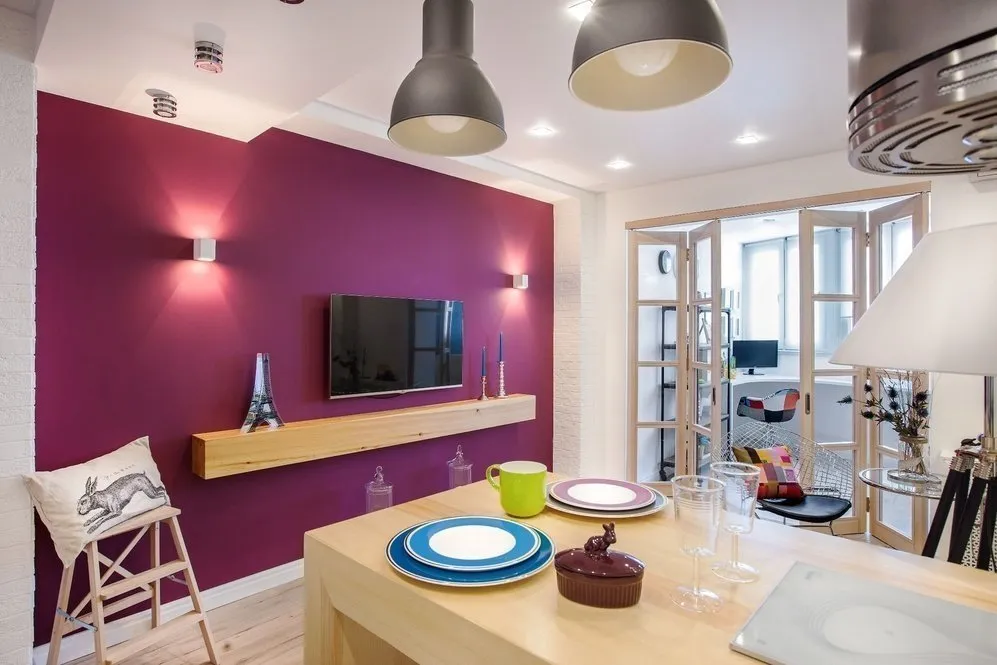
Design by Julia Piskareva
Above the Table
A TV is placed above the table only in extreme cases, such as when space is limited. A small screen (7-8 inches) is chosen, sufficient for viewing the image from 60 cm – the minimum for comfortable visual perception without excessive eye strain. However, there are some benefits to placing a device in such a way. Connecting the system unit (laptop) to the screen and using a wireless keyboard can transform the dining table into a fully computerized workspace.
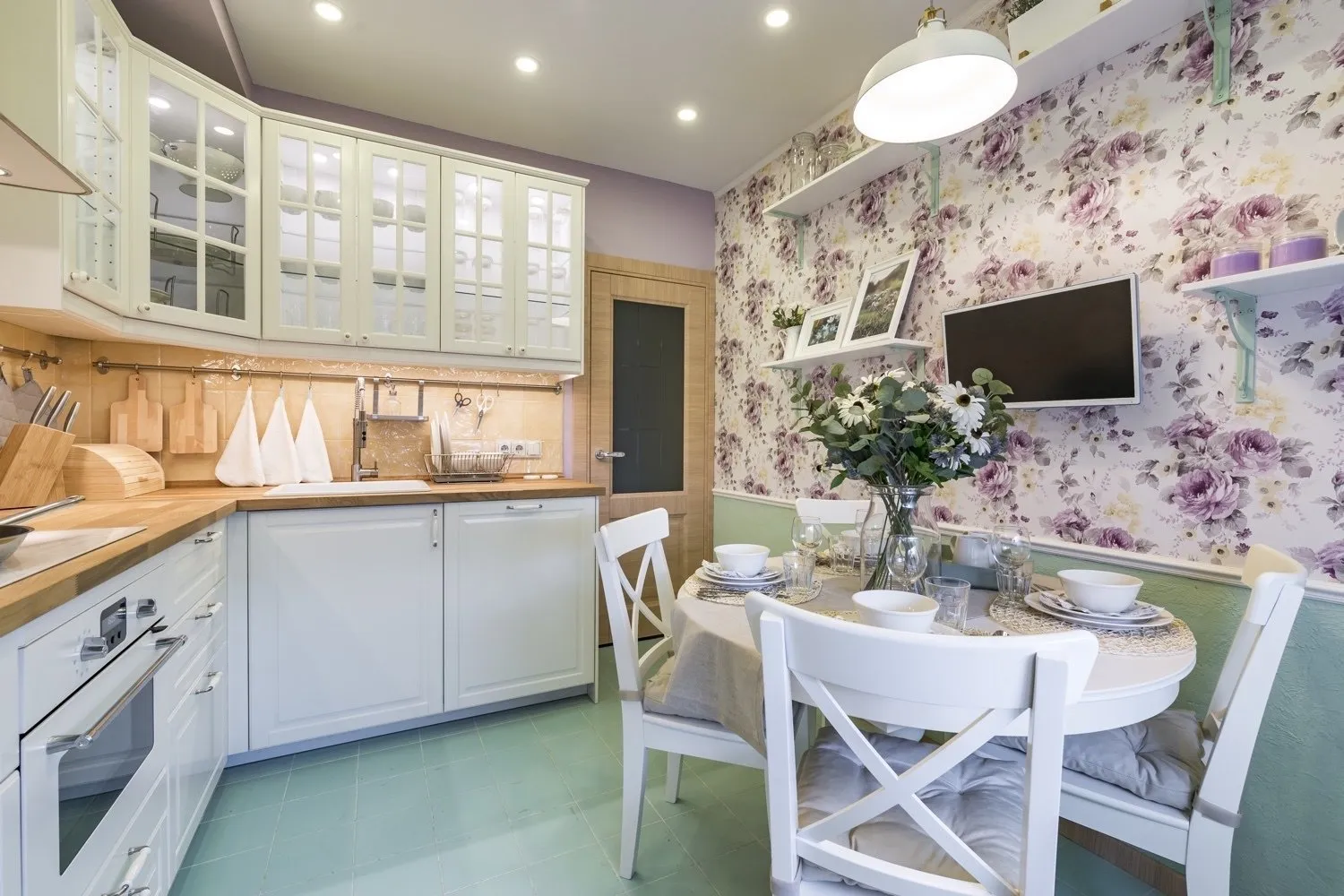
On the Shelf
If a TV is mainly watched while cooking, it easily fits on a shelf in a specially designated spot on the kitchen. A wall cabinet can serve as such a shelf. If the TV is not in use, it can be hidden behind doors. However, an open shelf offers more flexibility for rotating the screen in the desired direction.
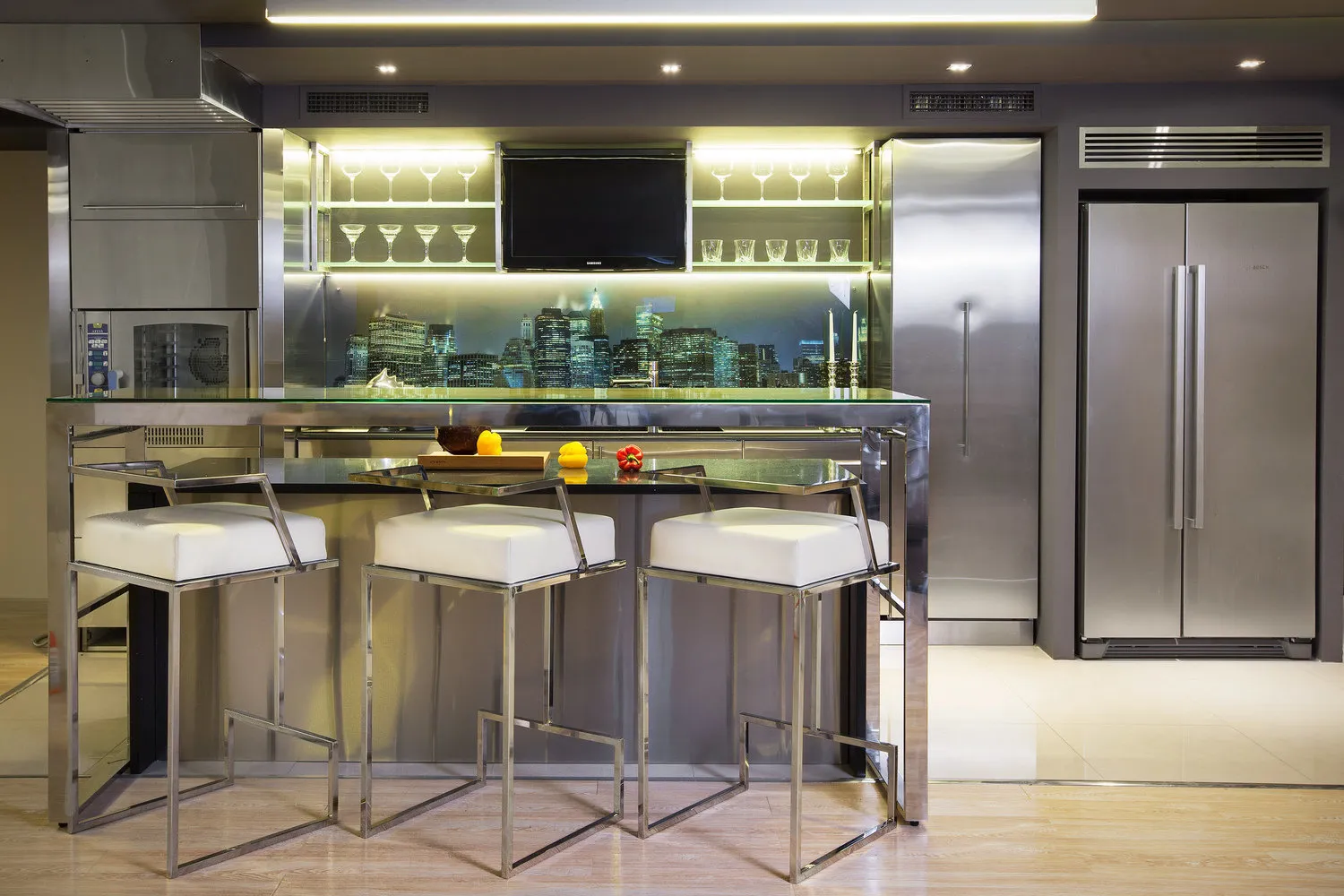
On the Surface
CRT TVs are placed on surfaces. This could be part of a large dining table, countertop, windowsill, sideboard, or the same shelf but with increased depth for a cathode ray tube. In small kitchens, placing the TV on a shelf in the corner is still popular: either above the sink or next to the table. The first option is less comfortable as moisture from the sink penetrates internal parts, shortening the lifespan of the electronic device.
Liquid crystal TVs in large dining rooms are installed on special stands designed exclusively for large TVs. These stands can easily be moved around the entire free kitchen area.
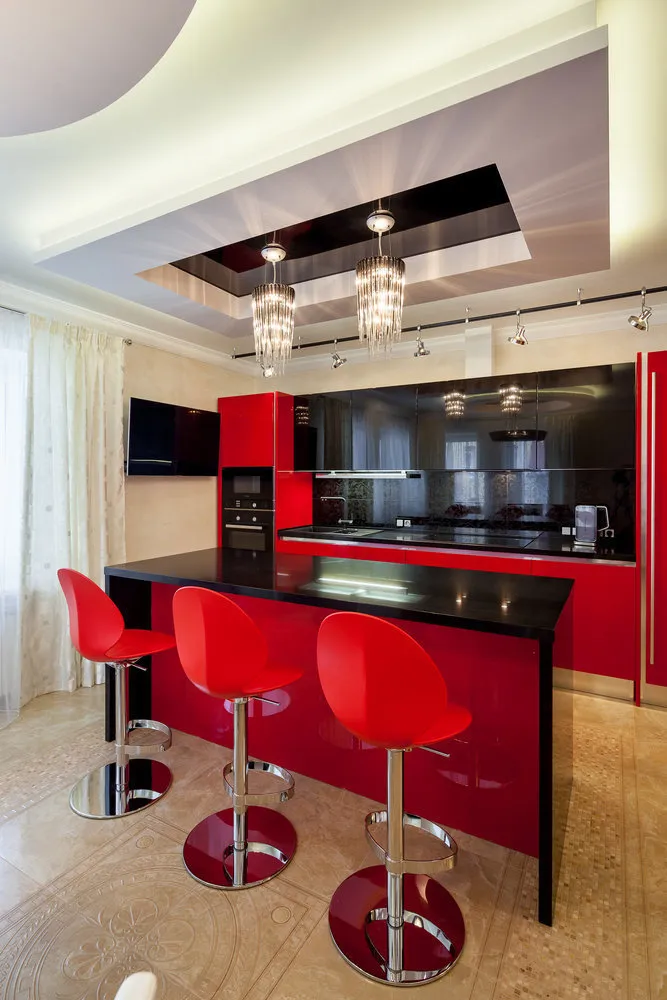
TV Placement Options in a Small Corner Kitchen
In a small corner kitchen, the TV is placed instead of cabinet doors or on an open wall. Light-colored wall finishes allow for a white TV receiver. Glossy surfaces and accent colors on the walls hide dark TV designs, masking the viewing area of the television signal. This way, it won't distract attention from the dining zone.
The design of a G-shaped corner kitchen places the TV in a fixed niche or on a bracket. If space allows, a sofa or corner soft furniture is placed opposite the TV. With an oval dining table, window blinds will allow comfortable viewing of TV programs without glare. Thus, the interior of a single-room apartment kitchen plays the role of a living room. The TV is an essential element for rest and decoration in this space.
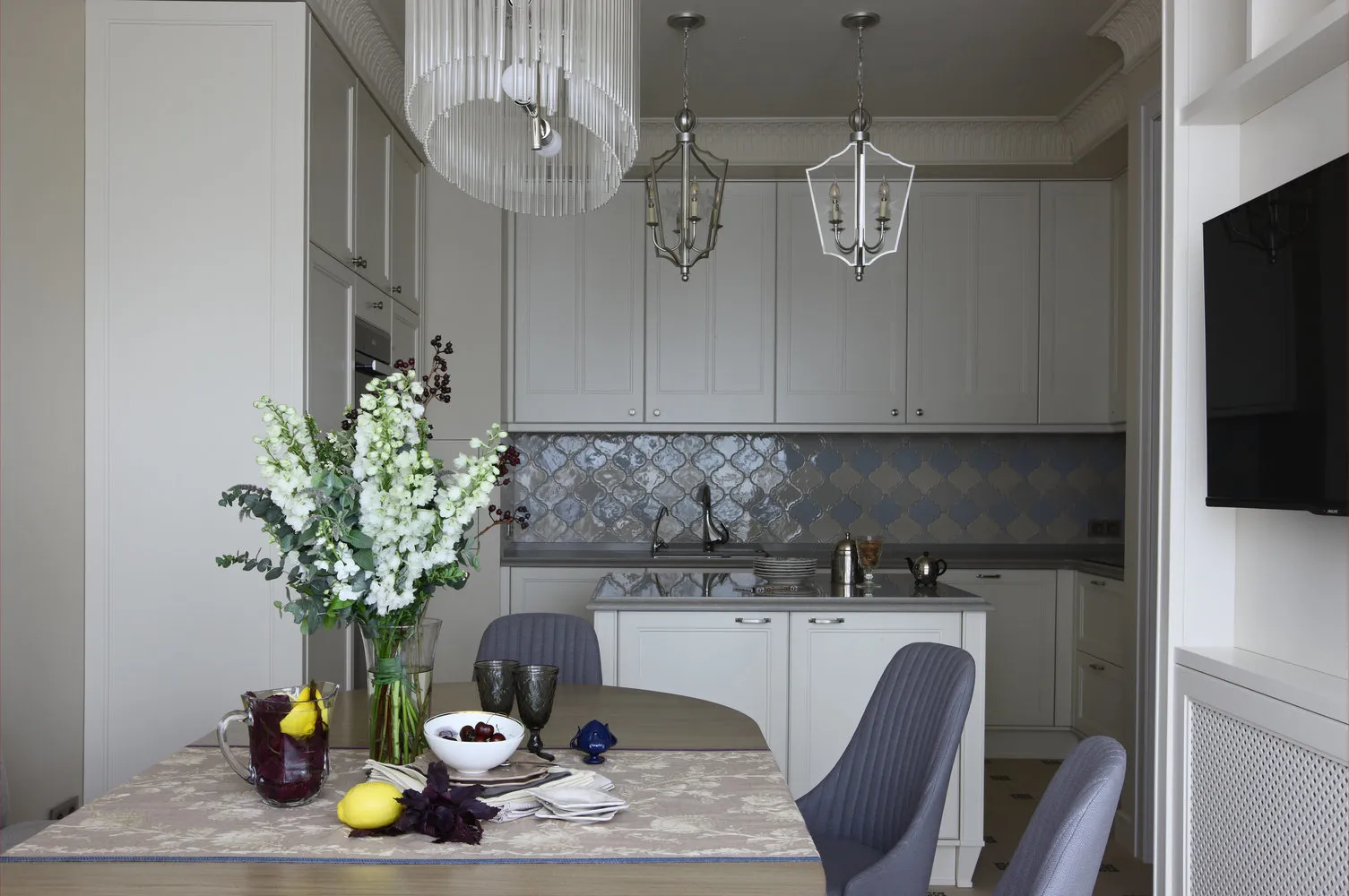
Design by Elena Lenskikh
Optimal Height for TV Installation
Ophthalmologists recommend watching the TV at eye level. While it's not always possible, striving for this is still necessary. Health of the eyes is at stake! TVs in the working area of a dining room, primarily used during food preparation, are chosen small – 7-15 inches. For other possible scenarios, a special formula is used: if vision is normal, the distance from the eyes to the screen is divided by 4. The result will indicate the required diagonal size of the TV receiver in centimeters. For impaired vision, this distance is divided by 3. For example, a distance of 50-66 cm corresponds to a diagonal of 19-25 inches.
- The farther the TV is from the viewing area, the higher it can be placed.
- The maximum head tilt for extended viewing is within 20°.
- The optimal value is when the center of the TV receiver is at eye level.
Proper and skillful use of a TV in the kitchen will help preserve vision and extend the lifespan of the TV receiver
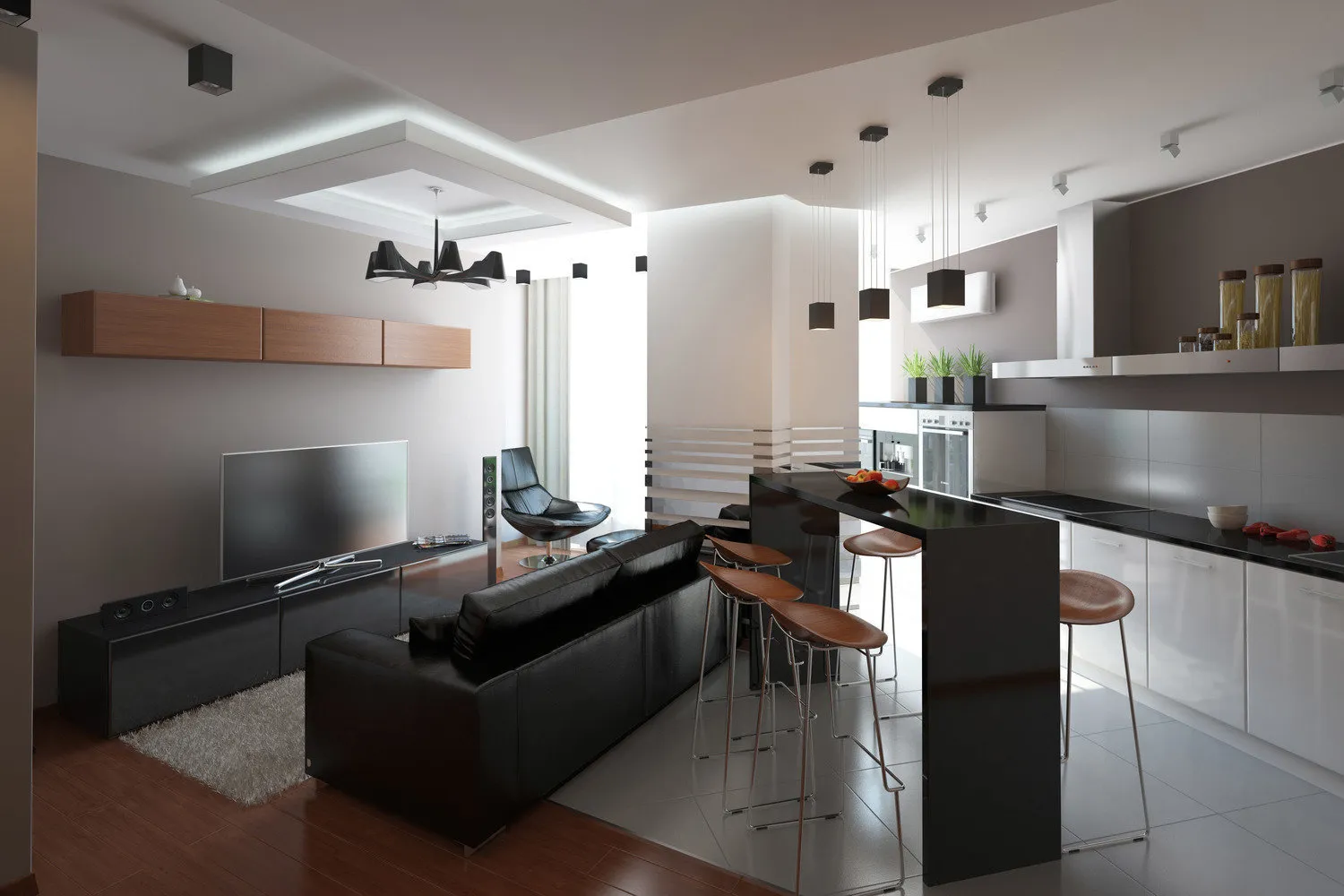

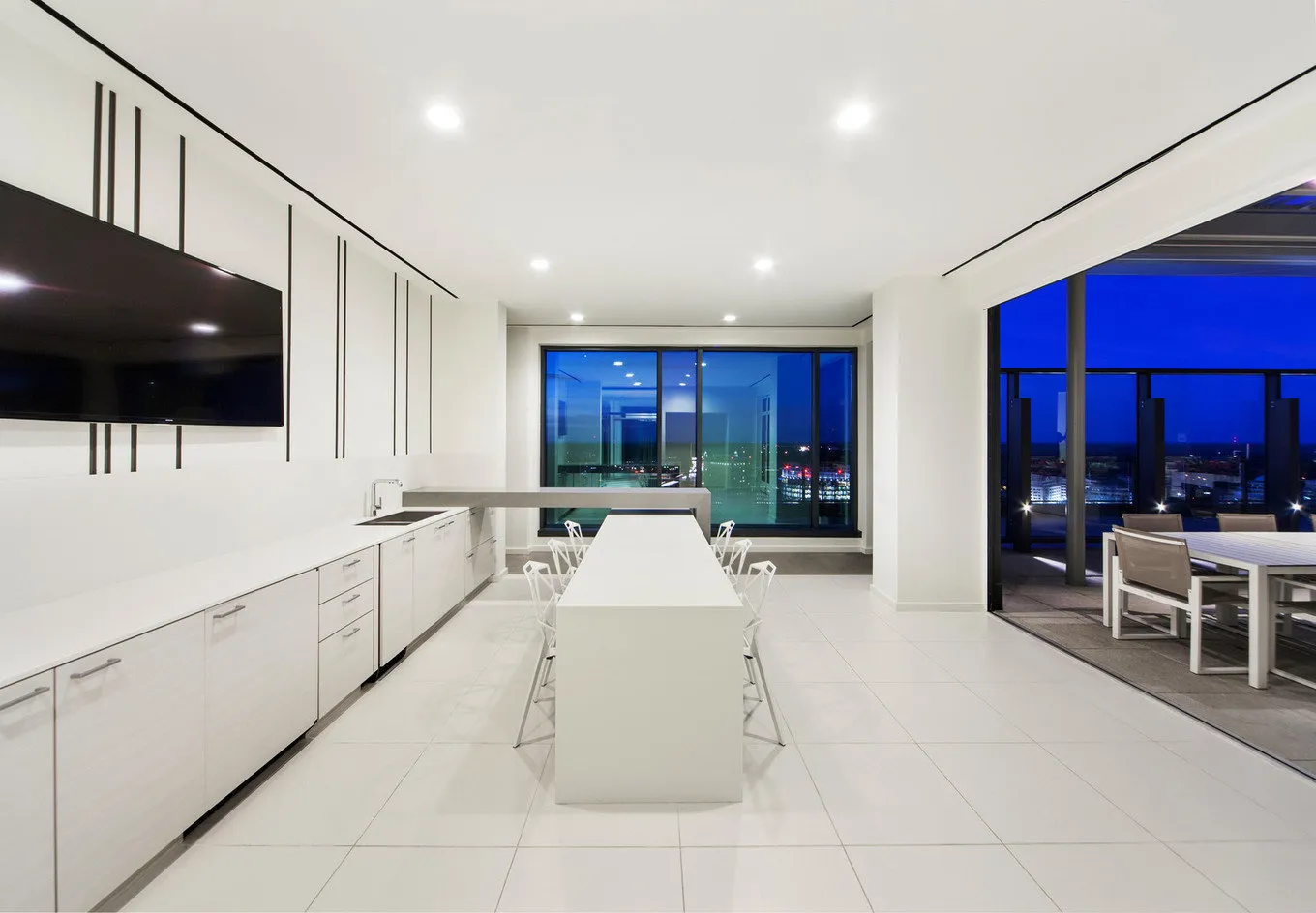
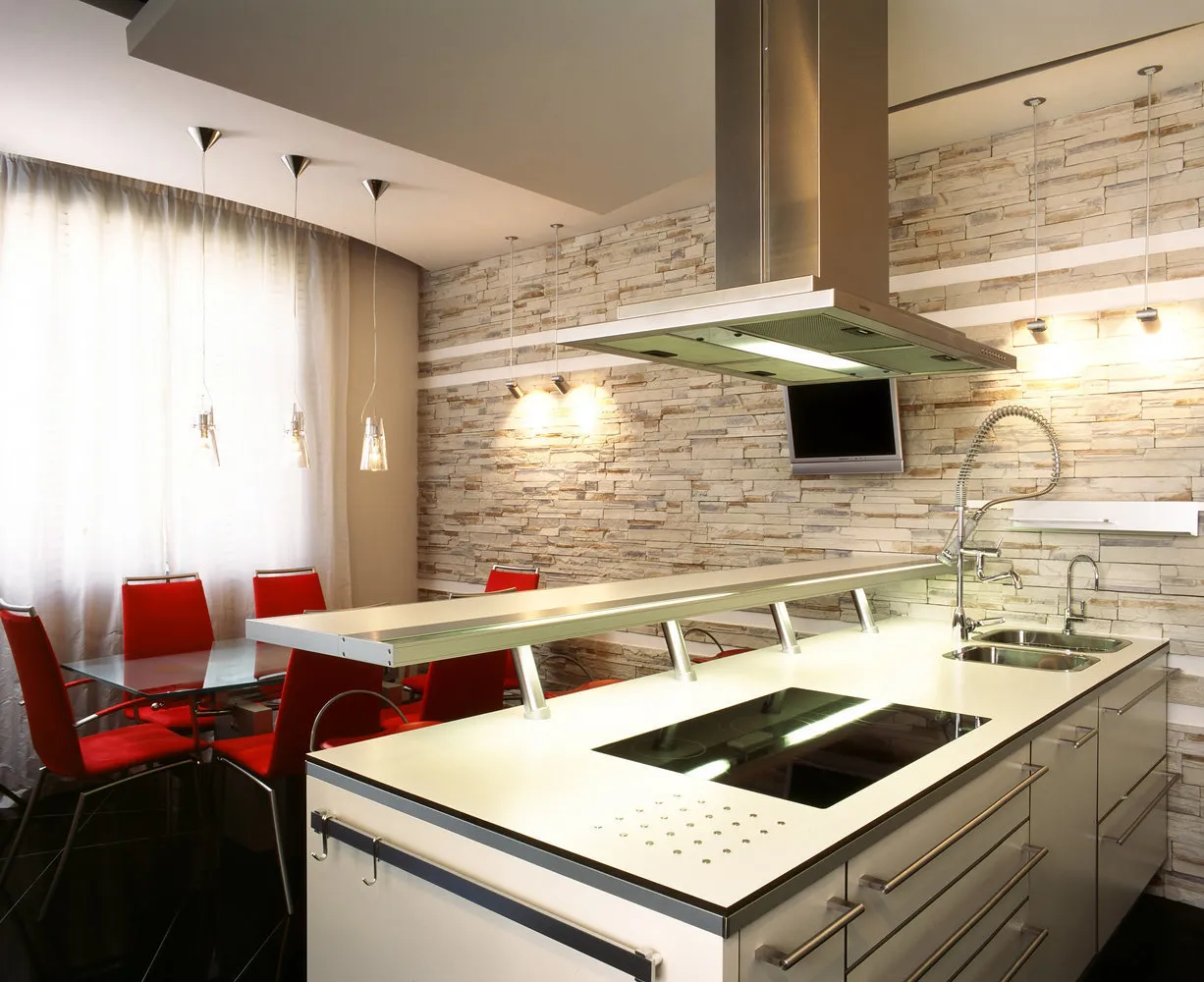
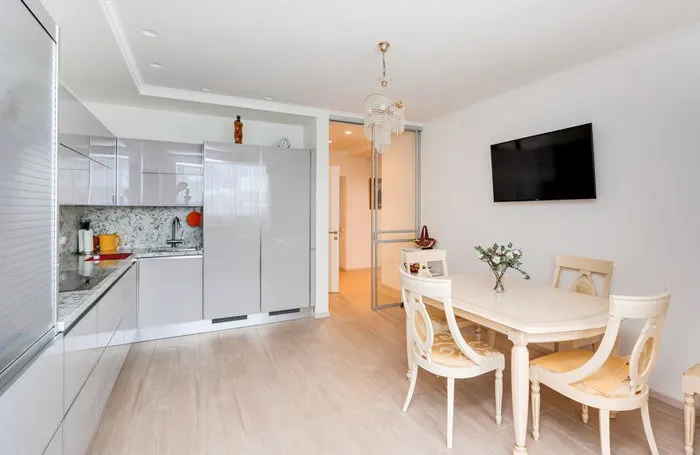
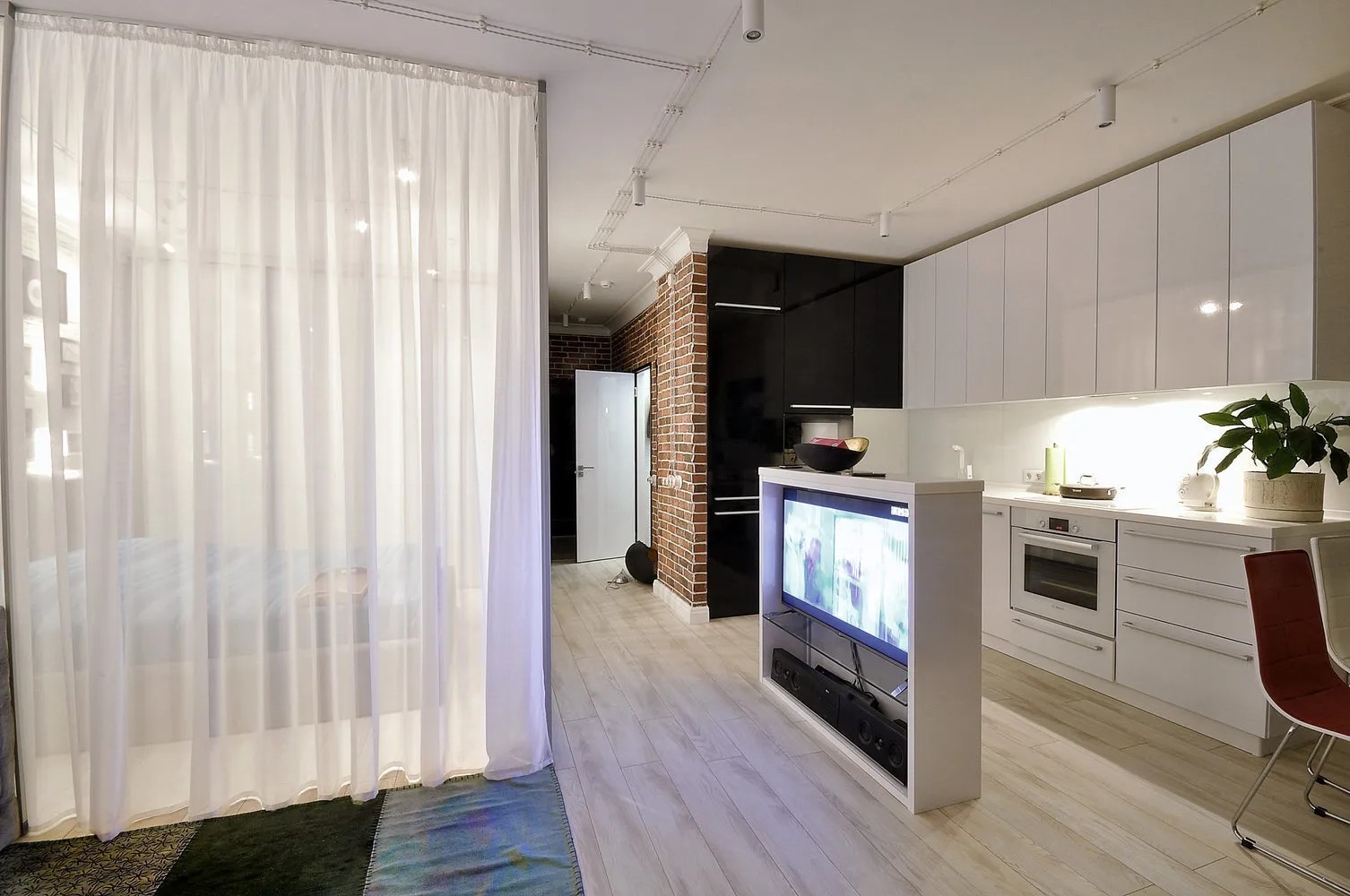
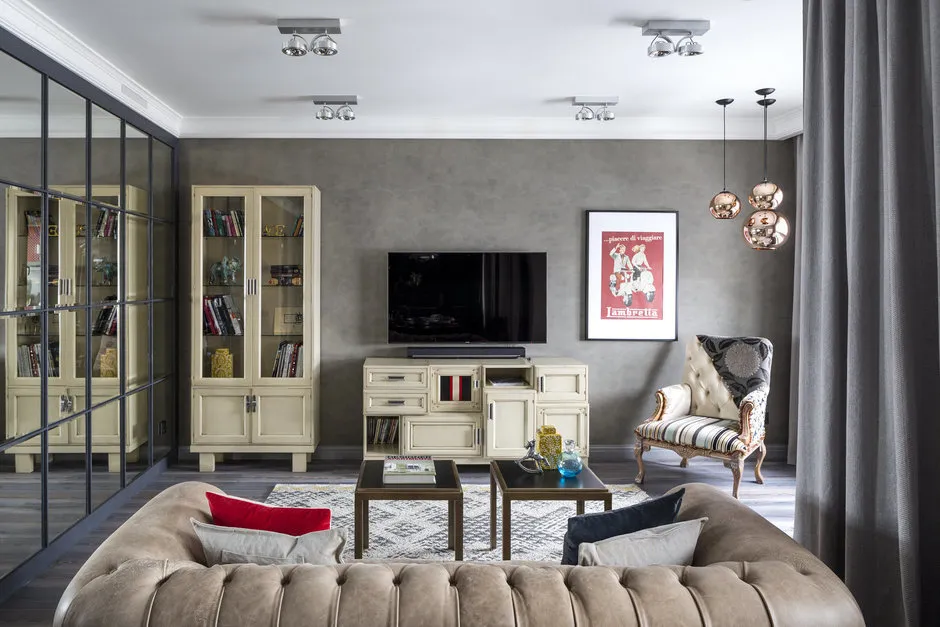
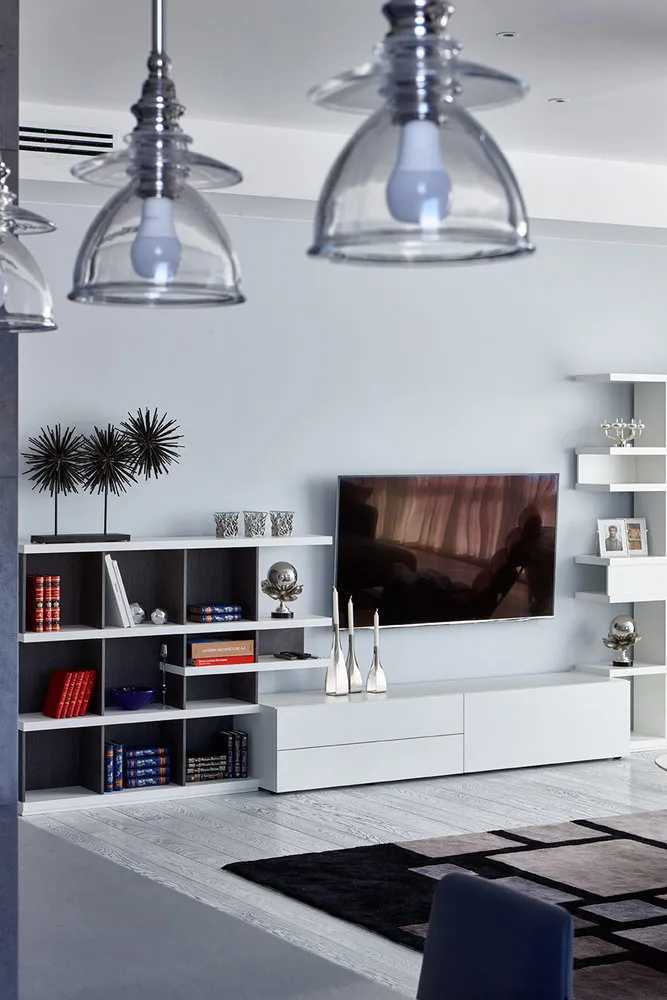
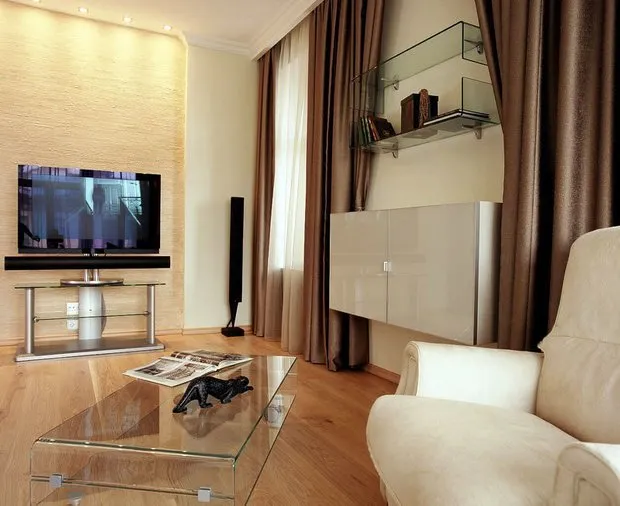
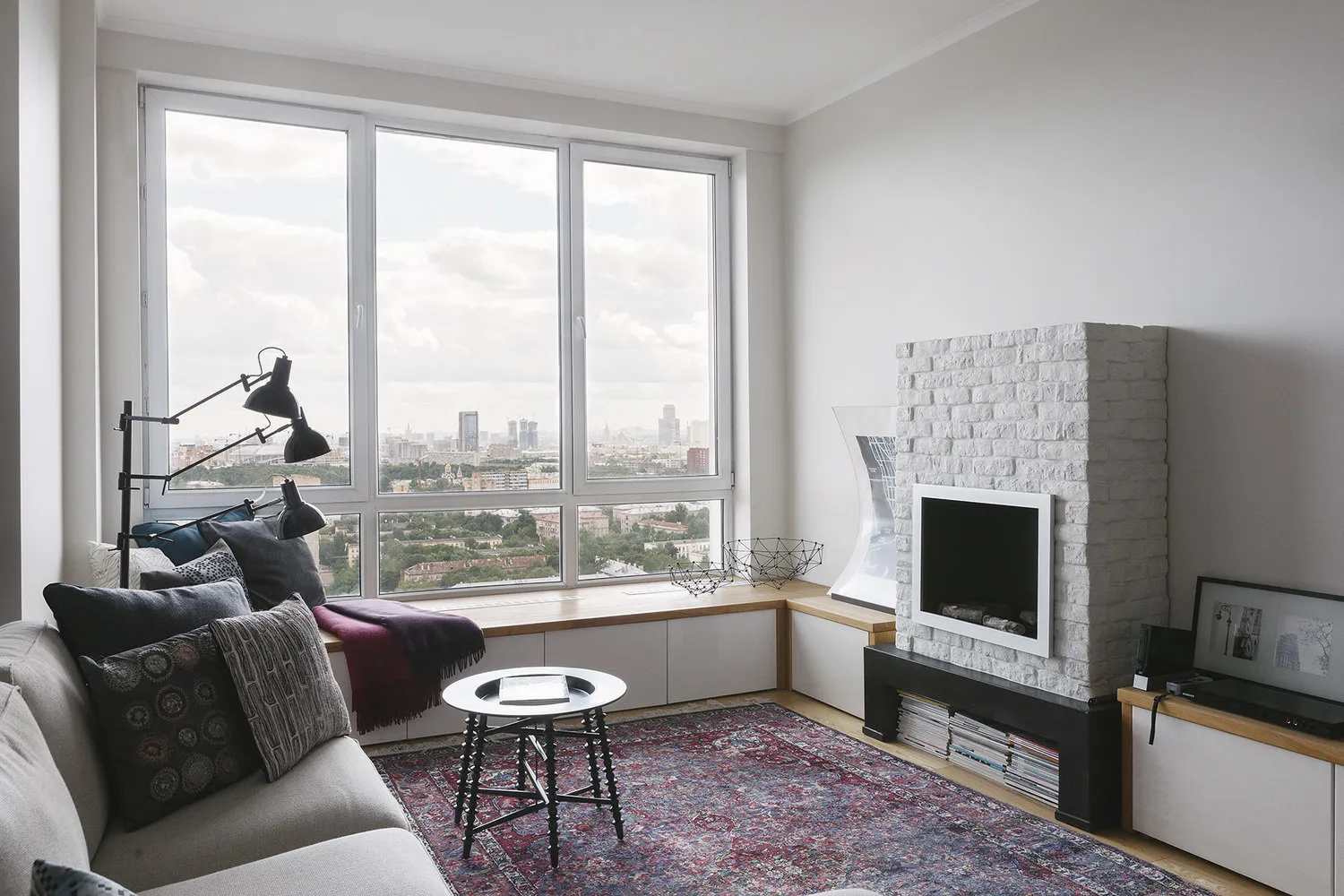
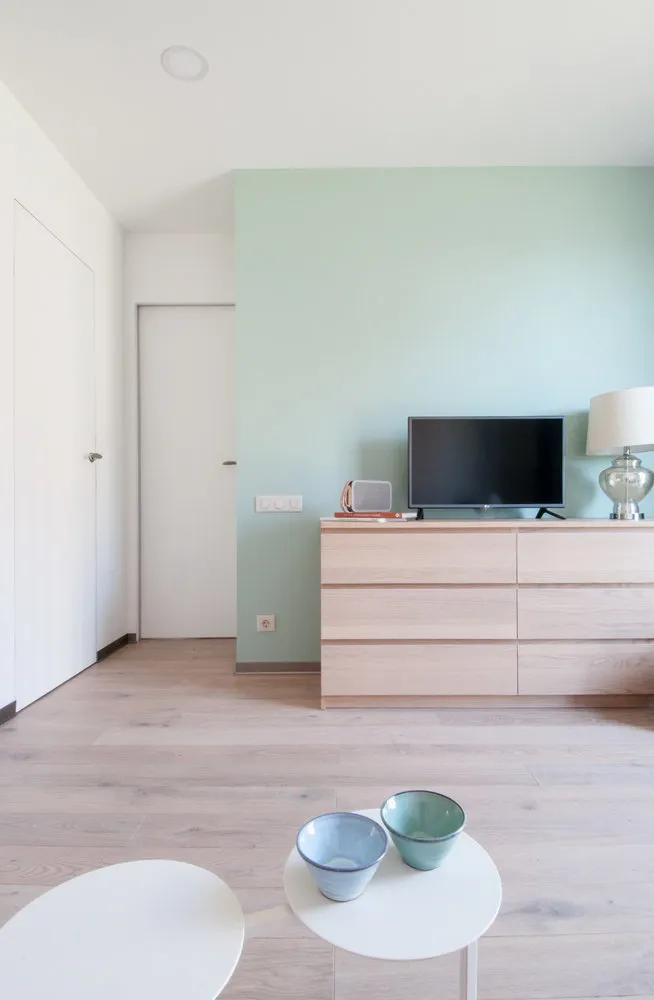
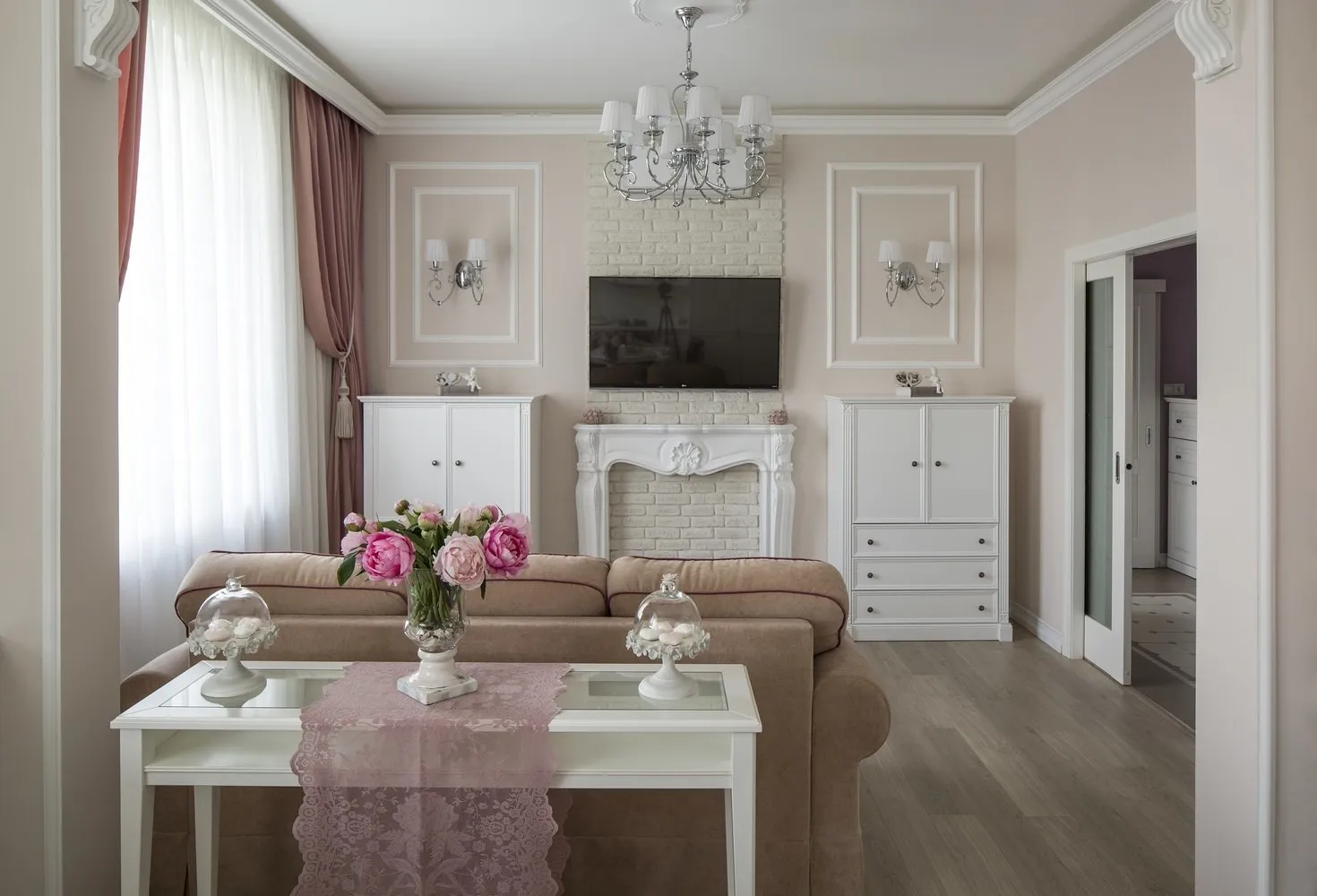
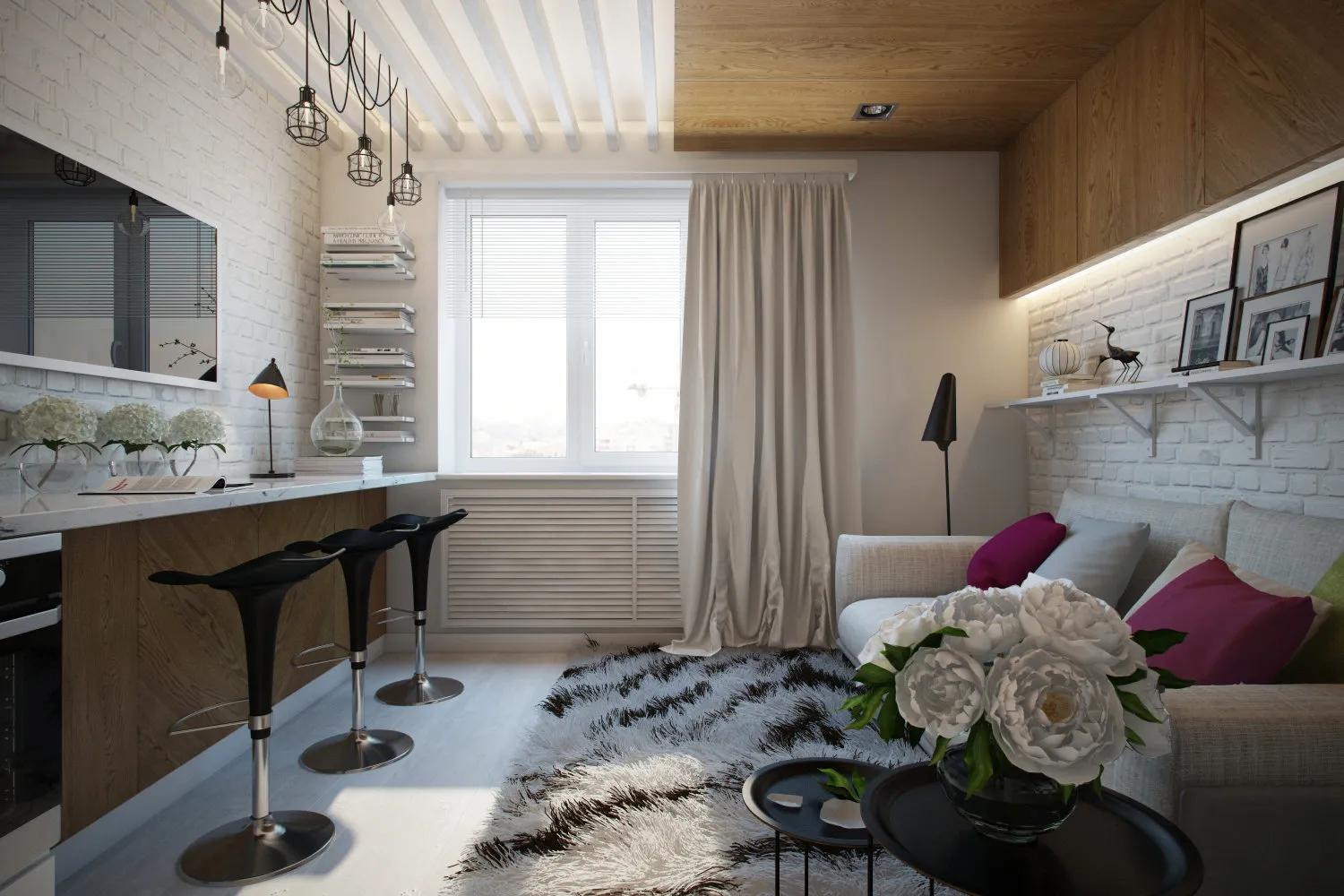

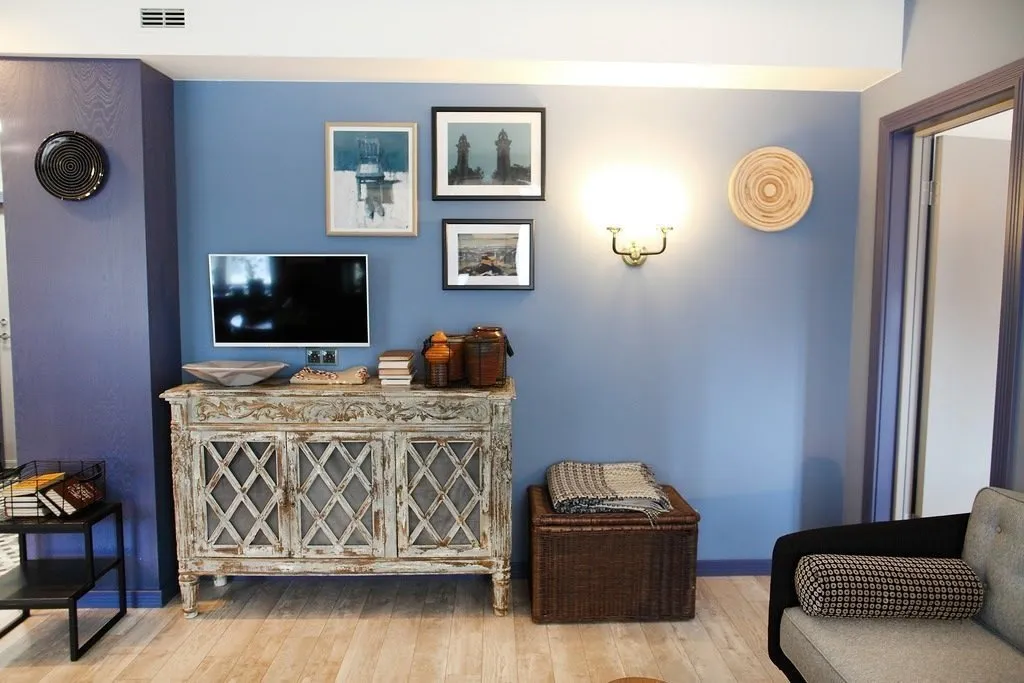
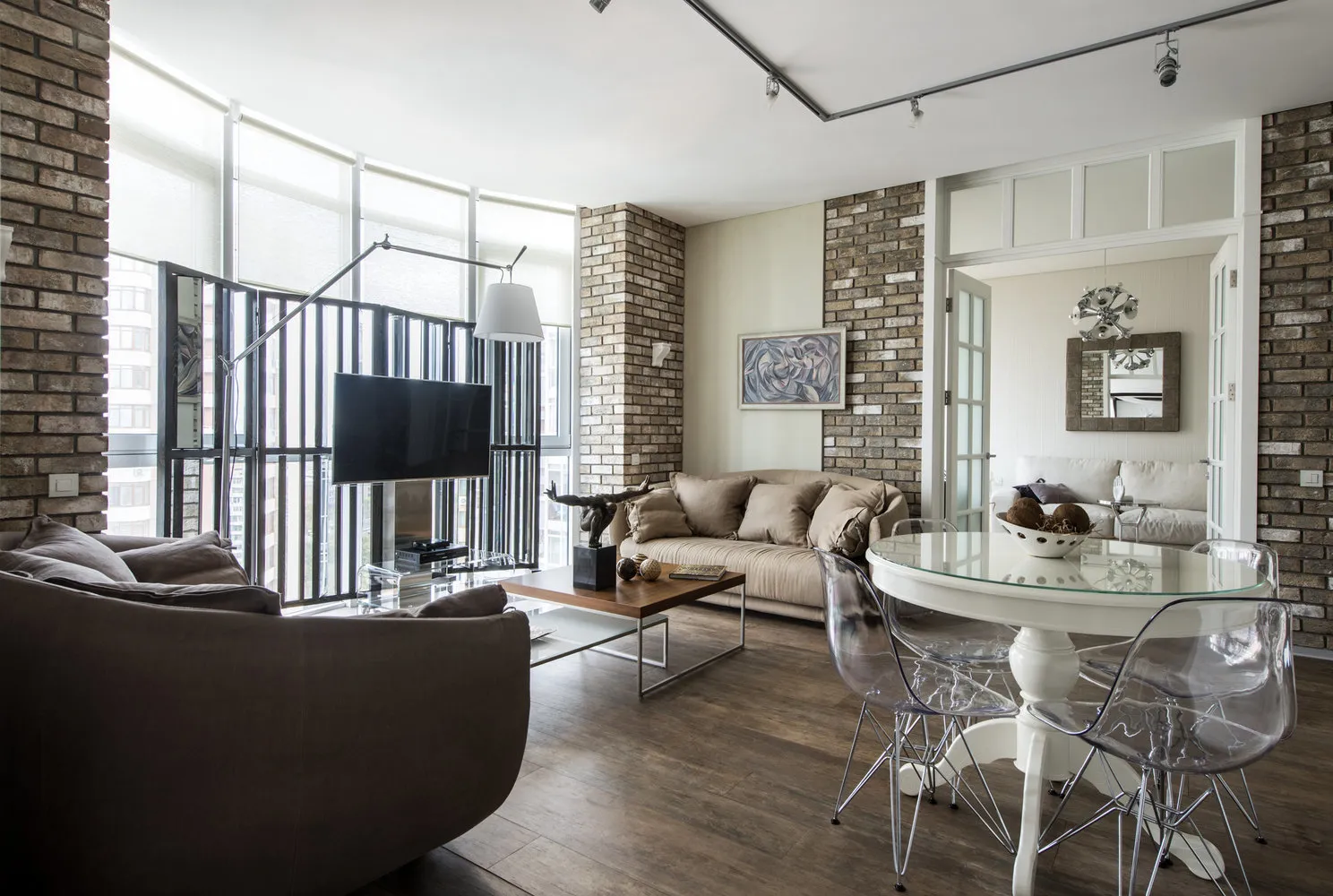
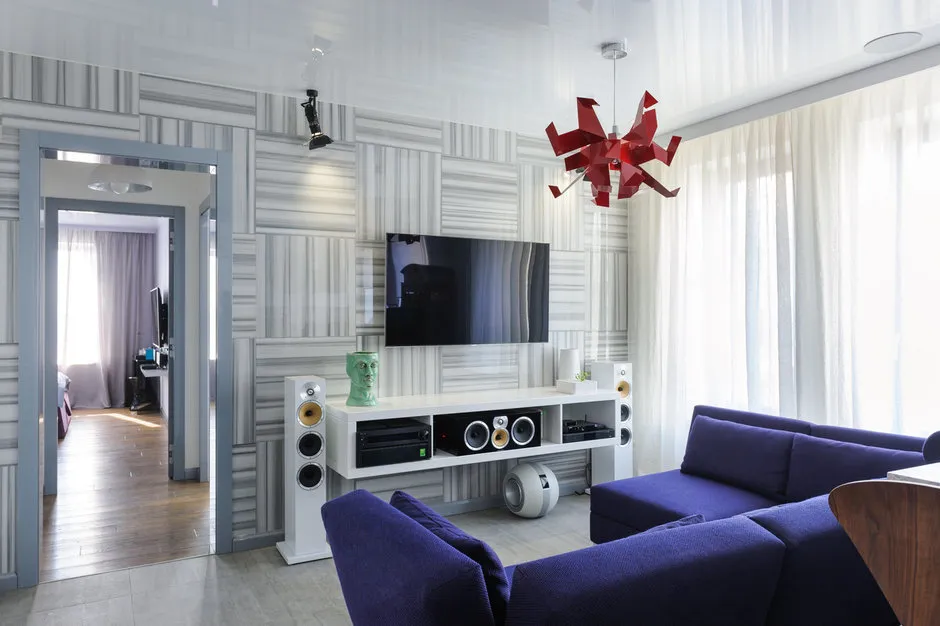

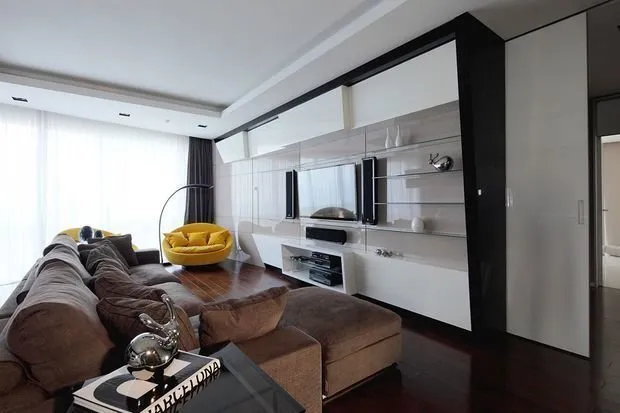
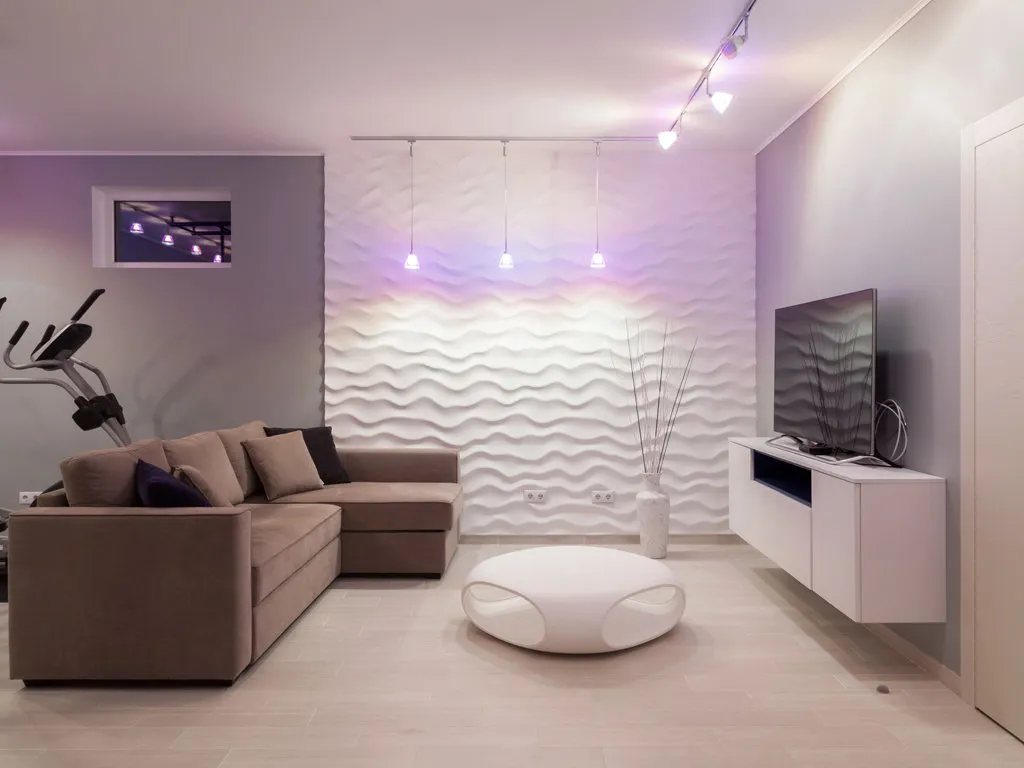
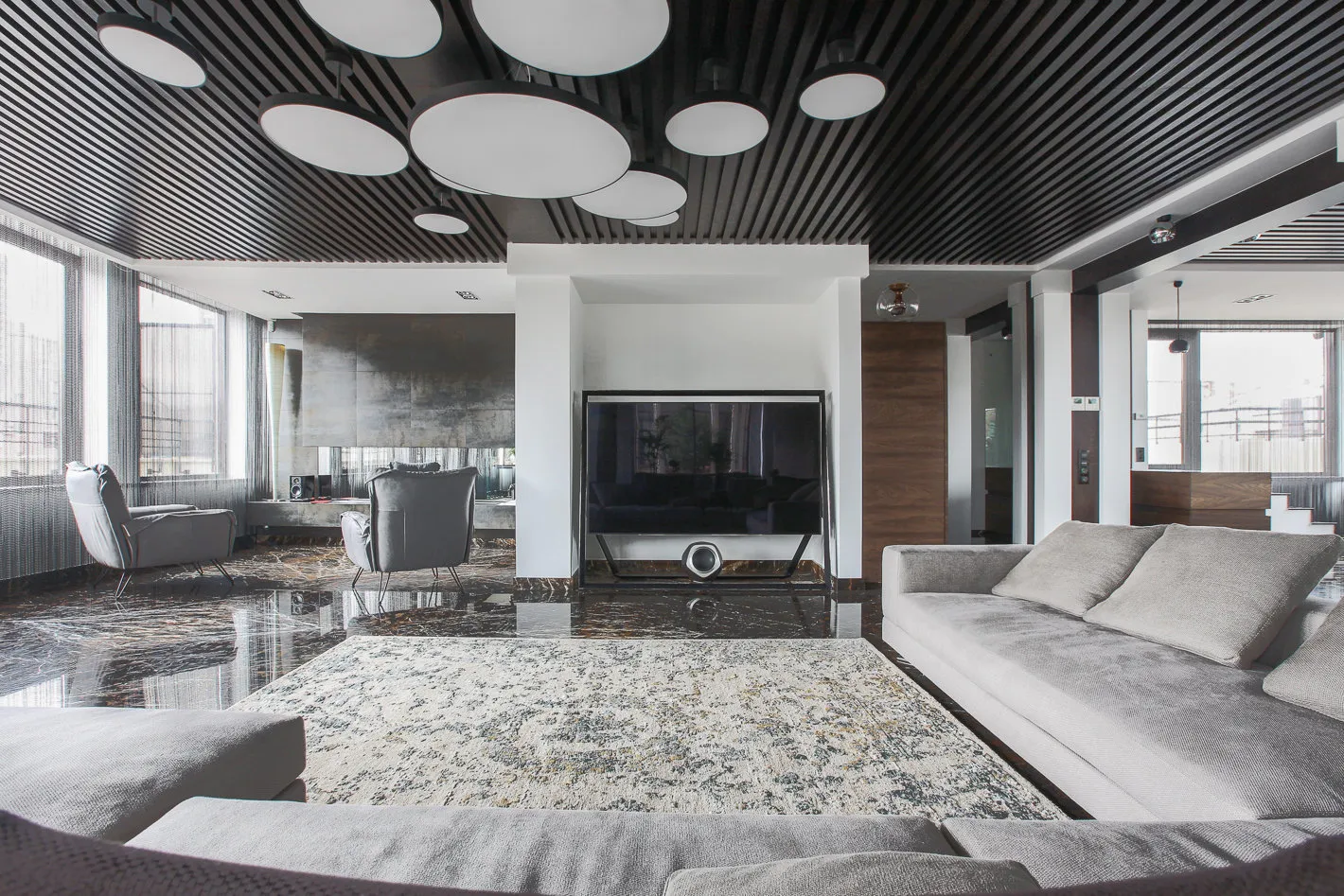
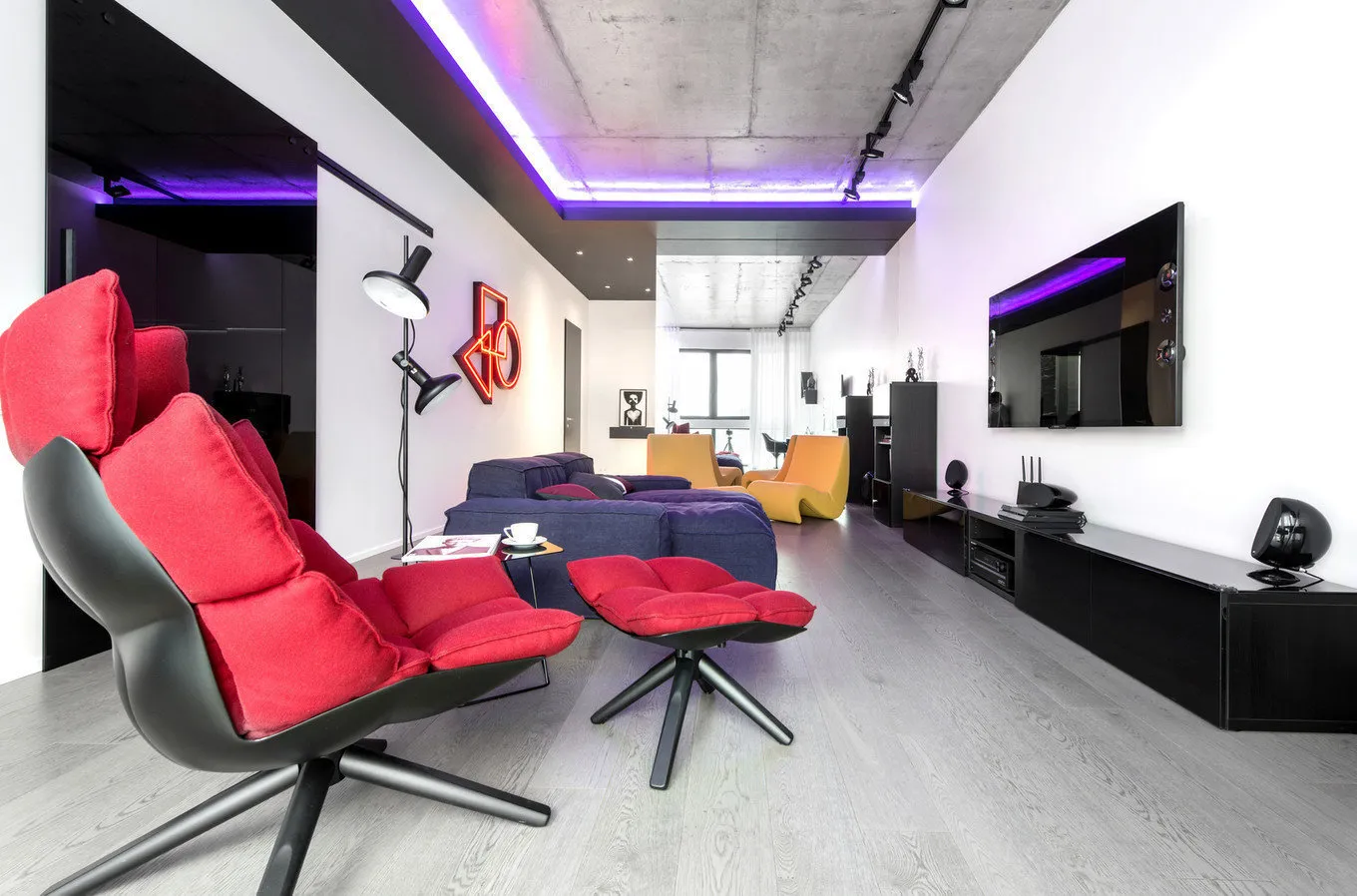
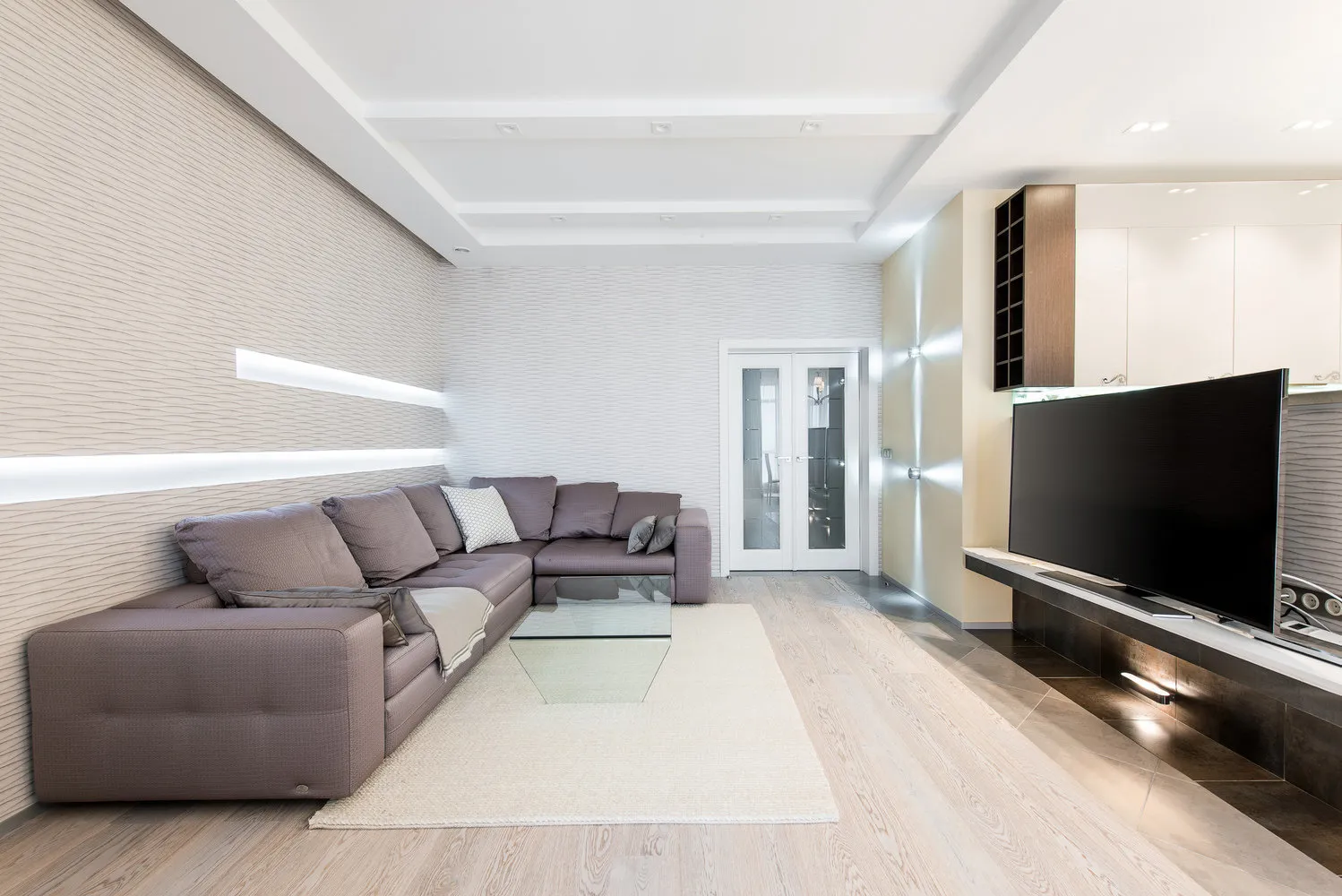
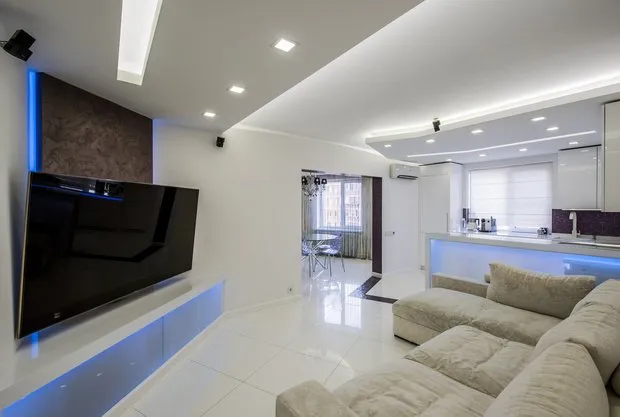
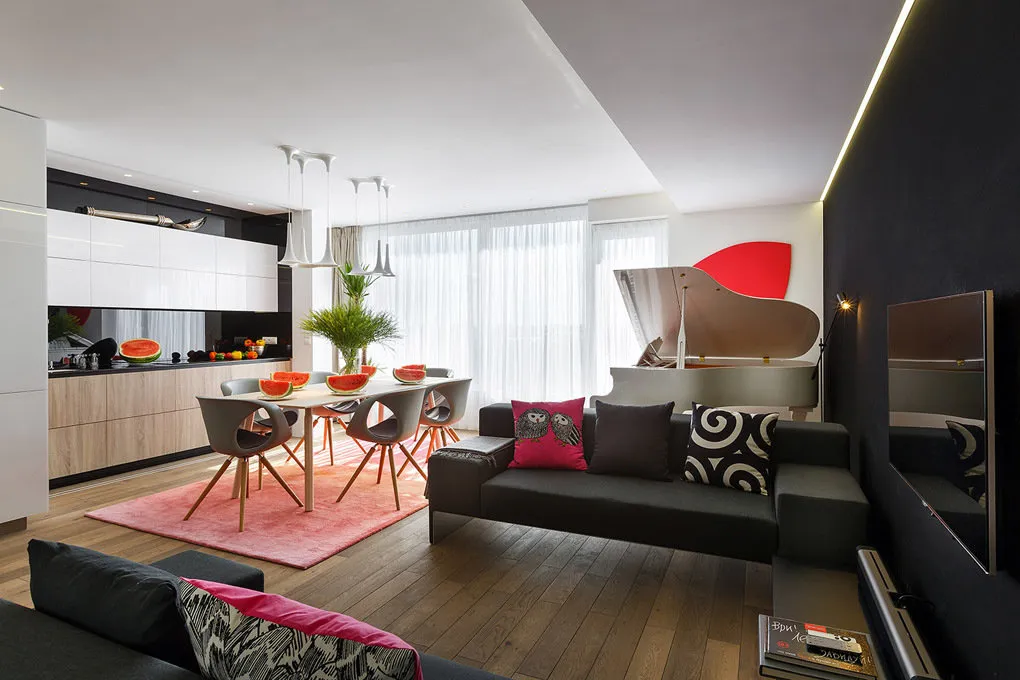
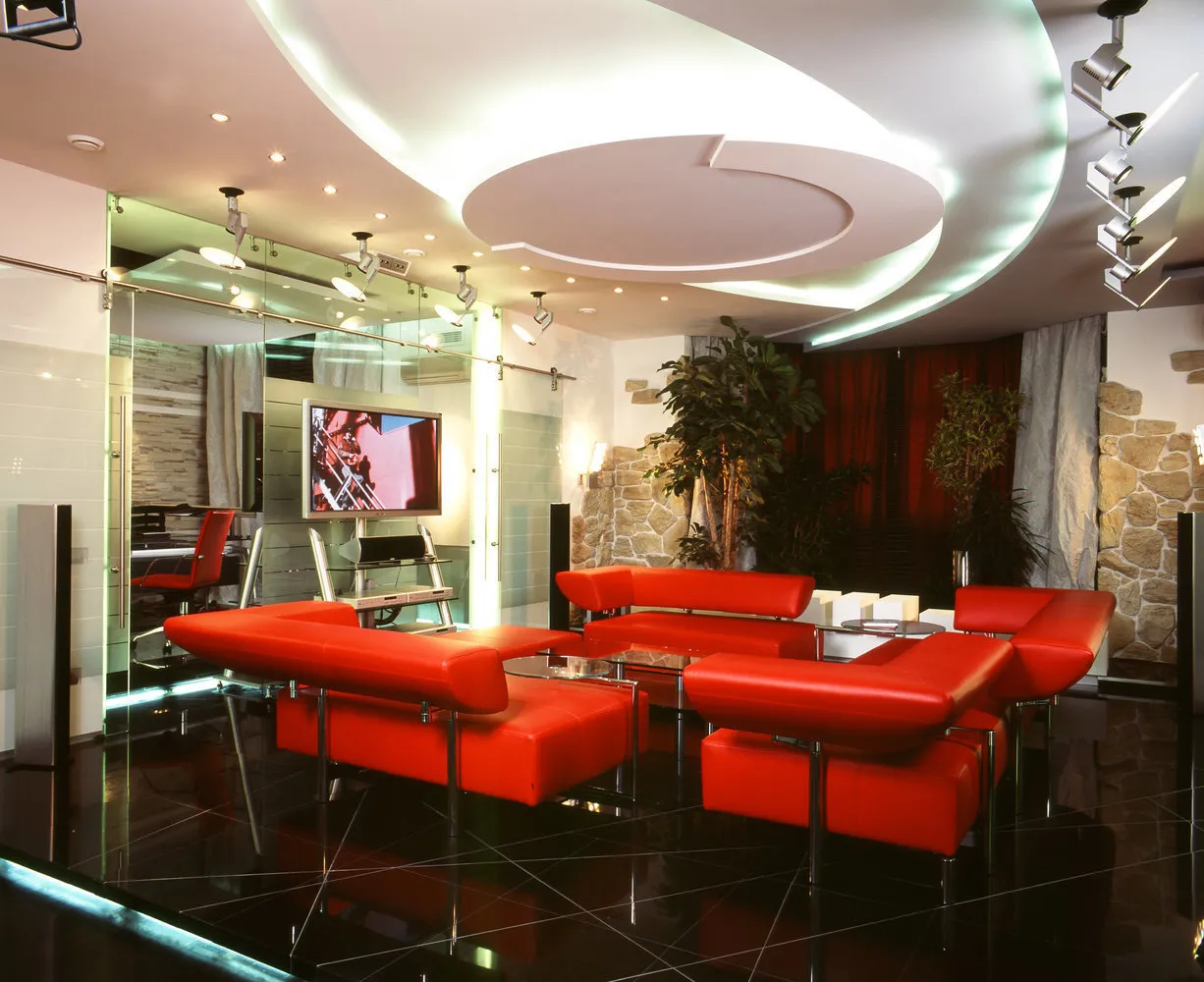
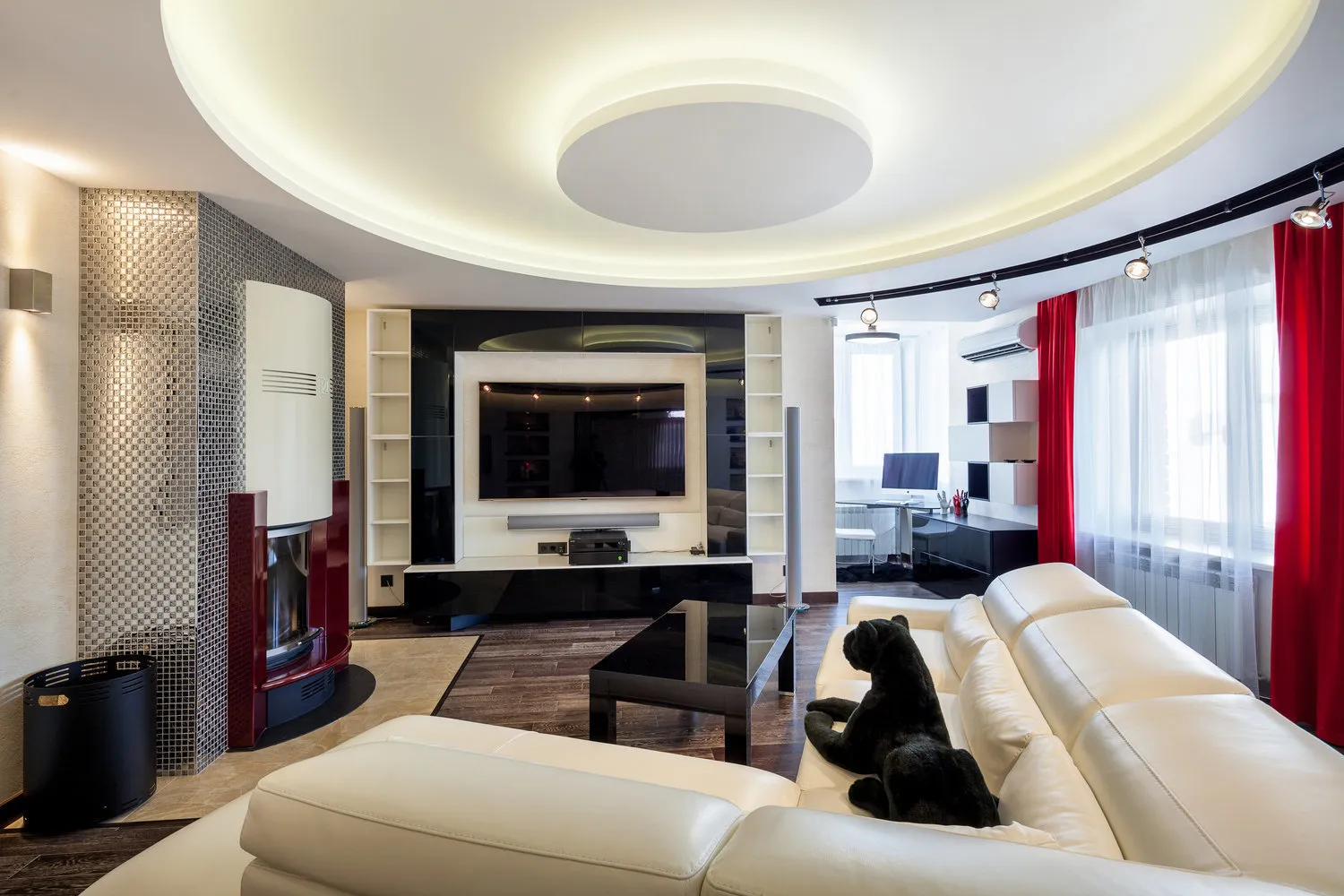
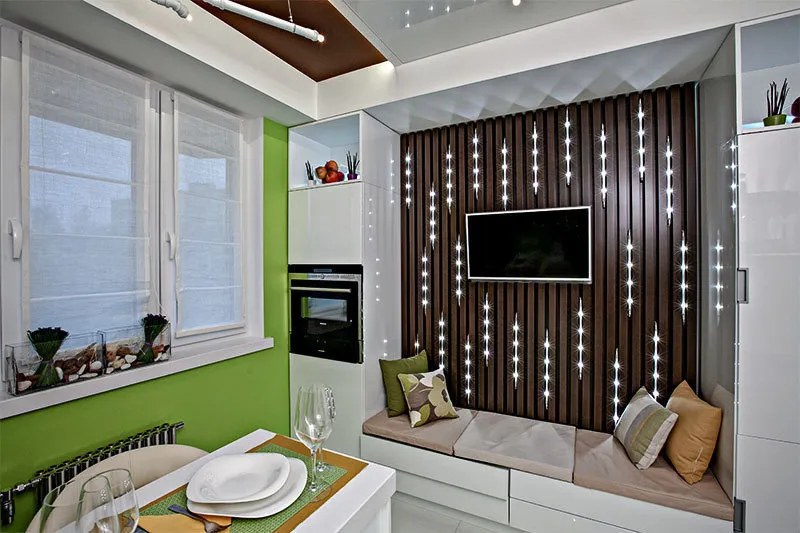
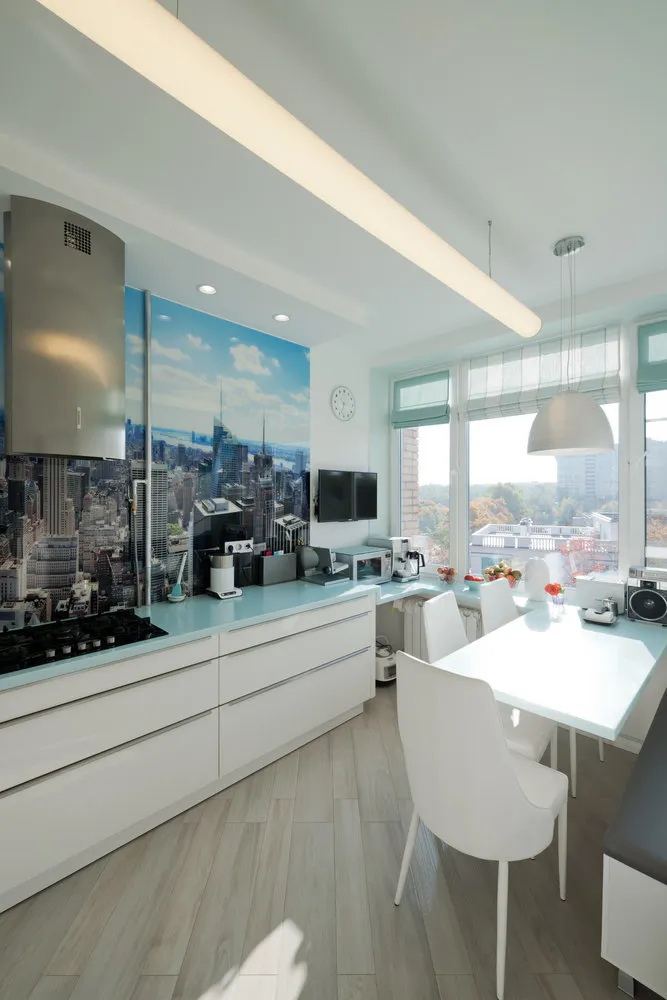
Architect: Shamsudin Kerimov
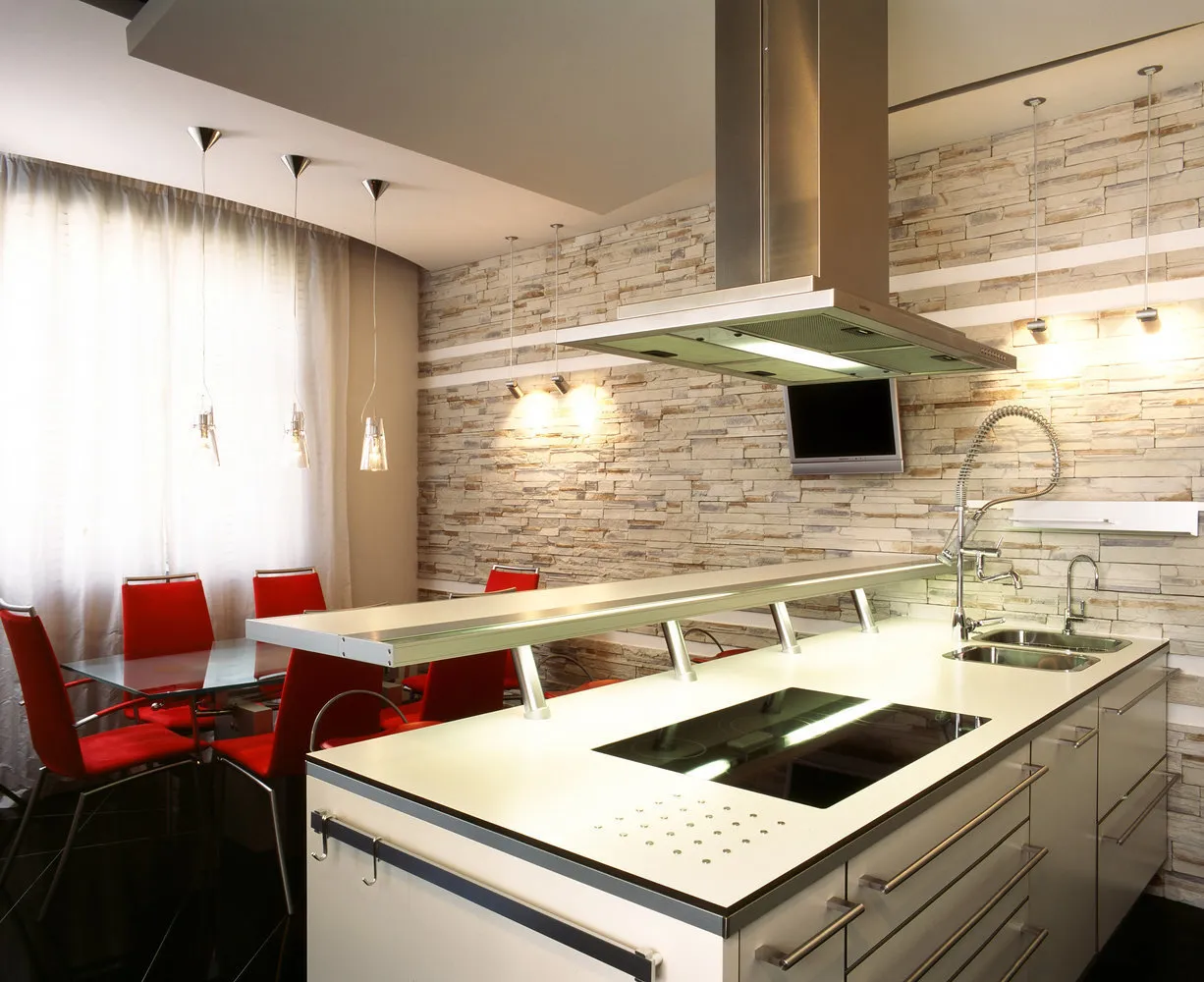
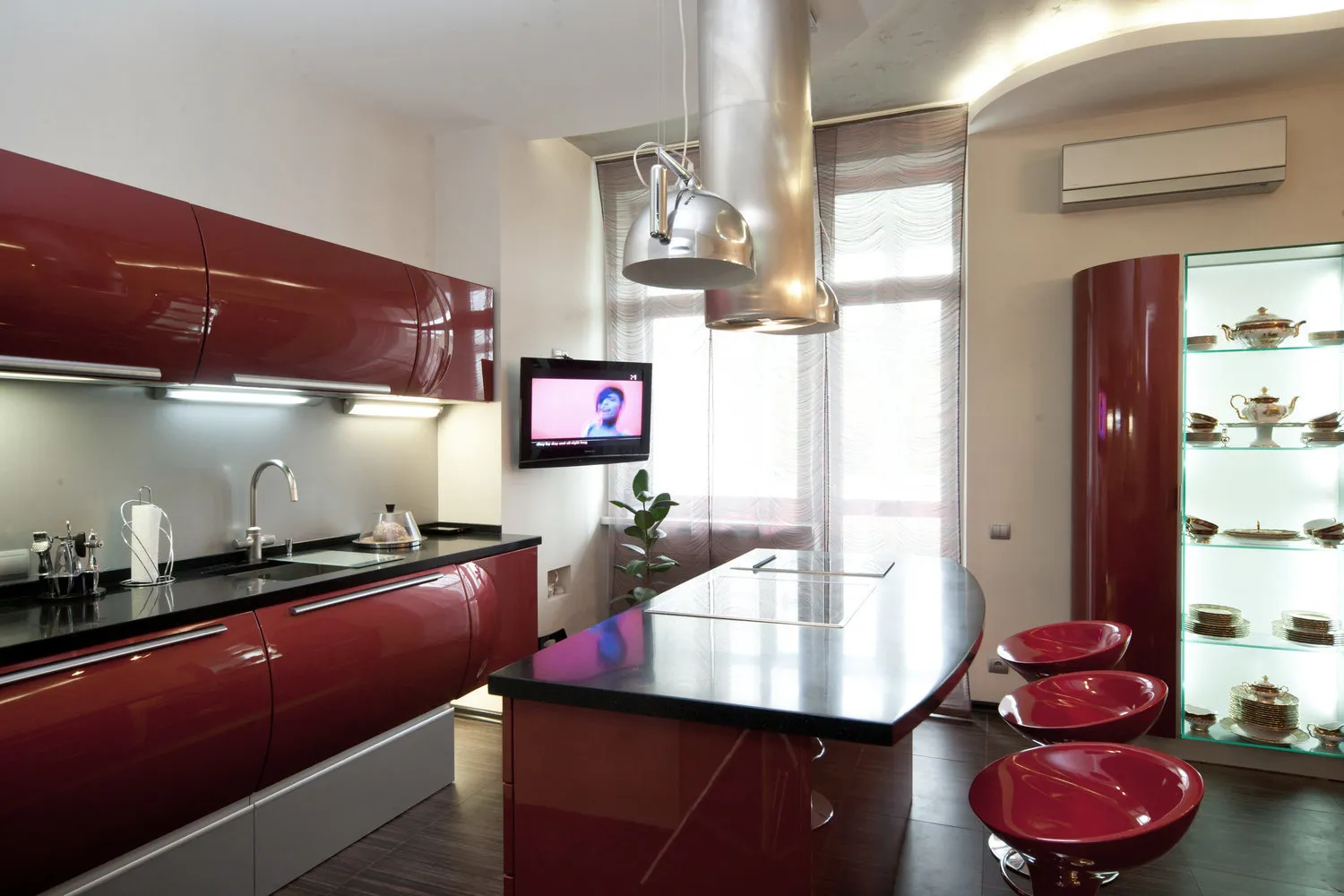
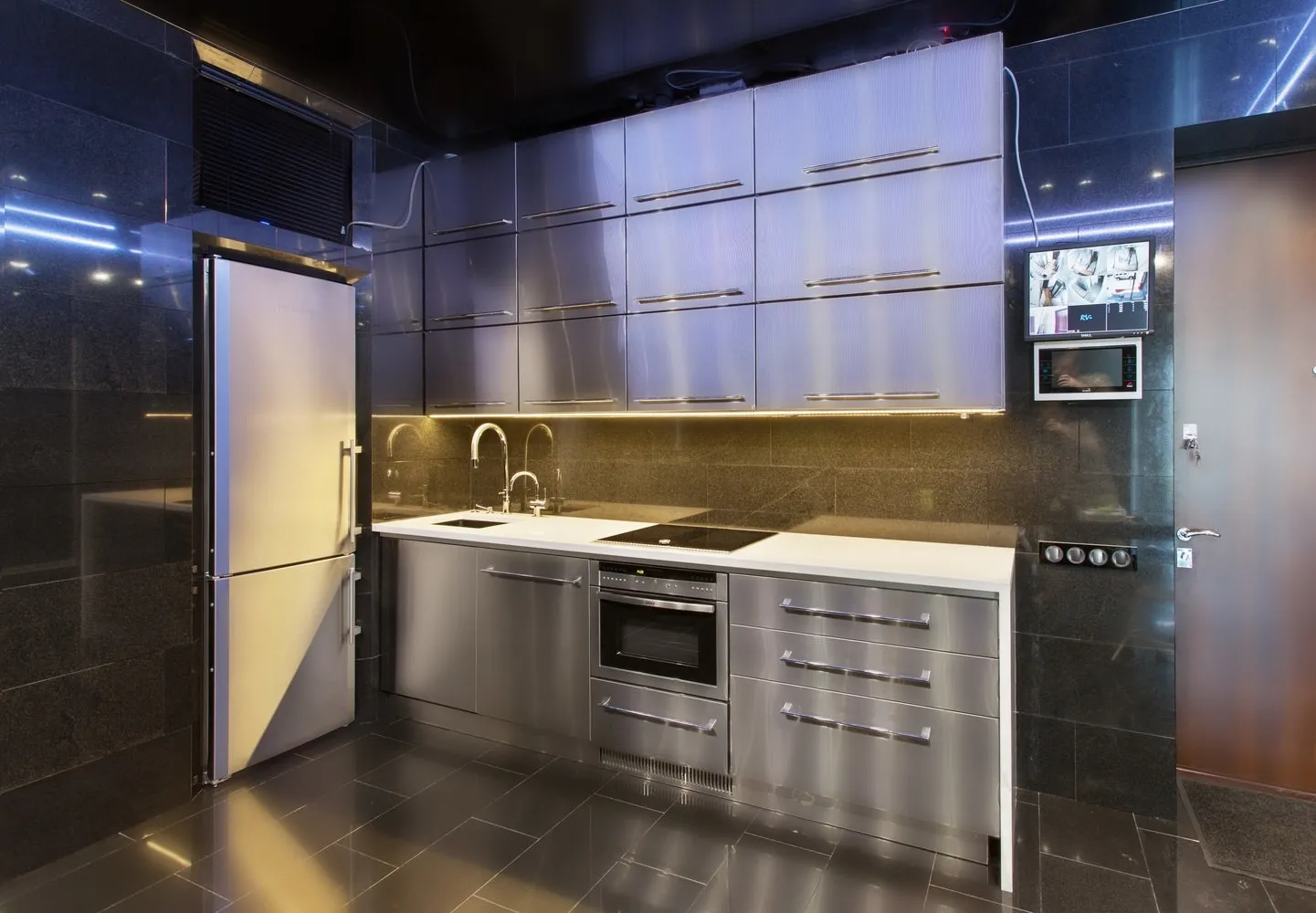
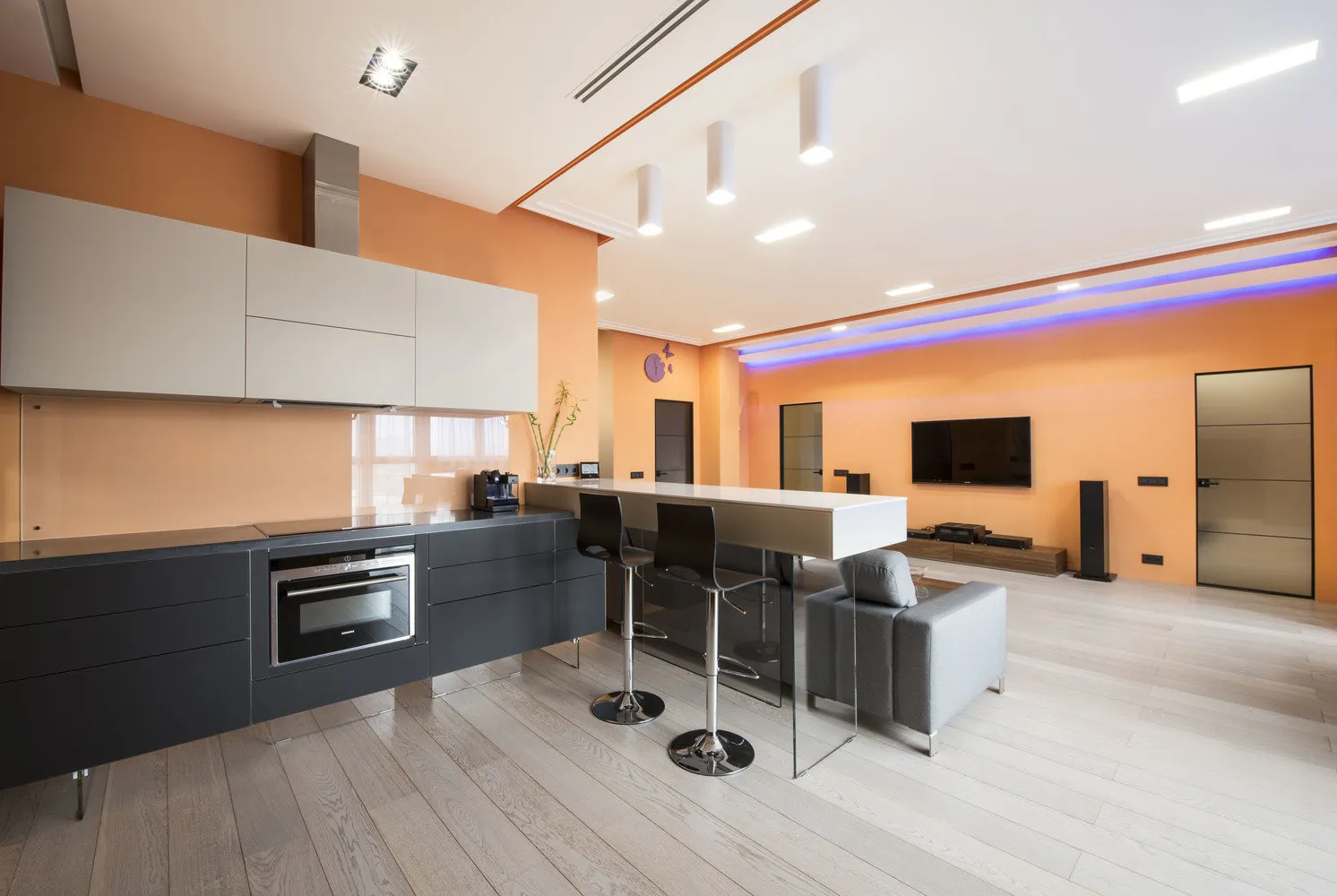
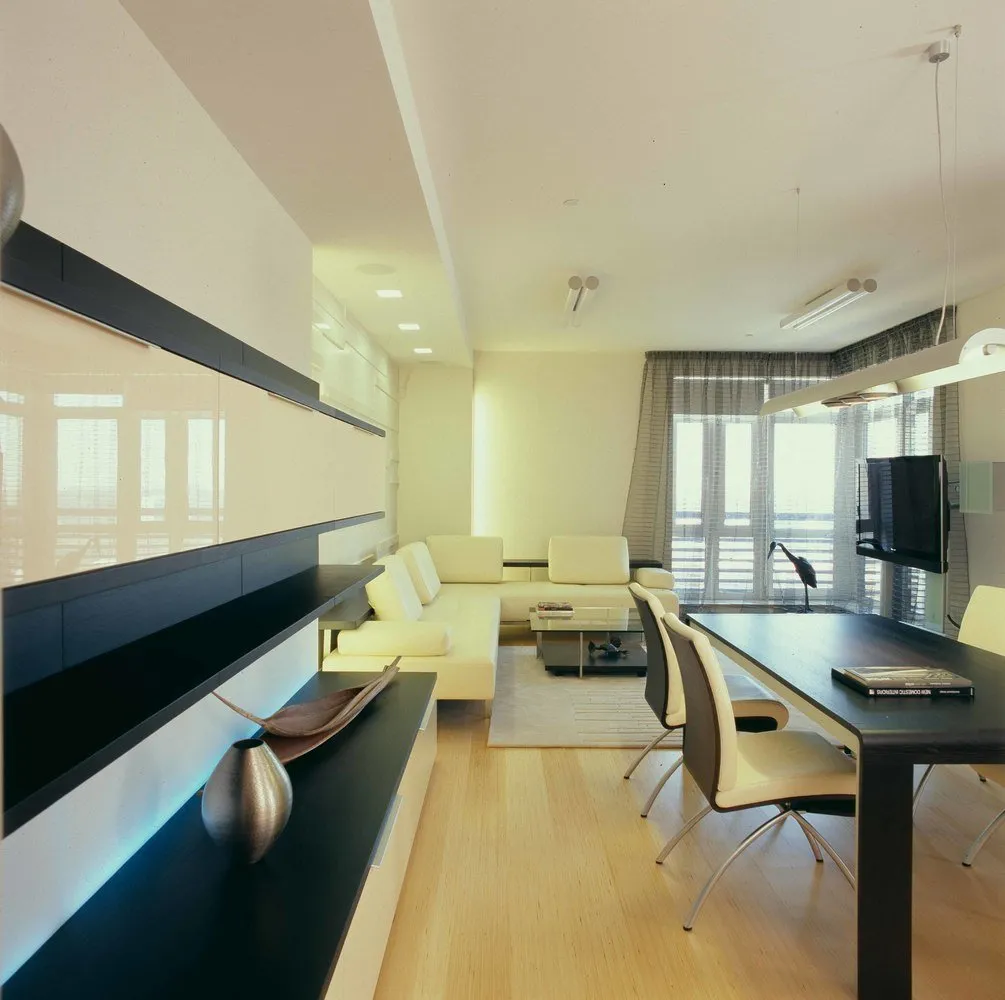
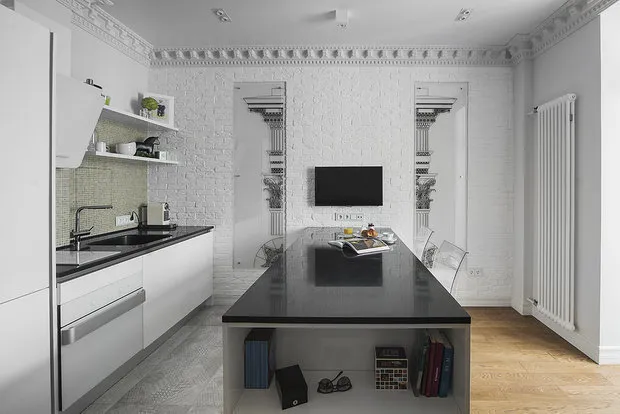
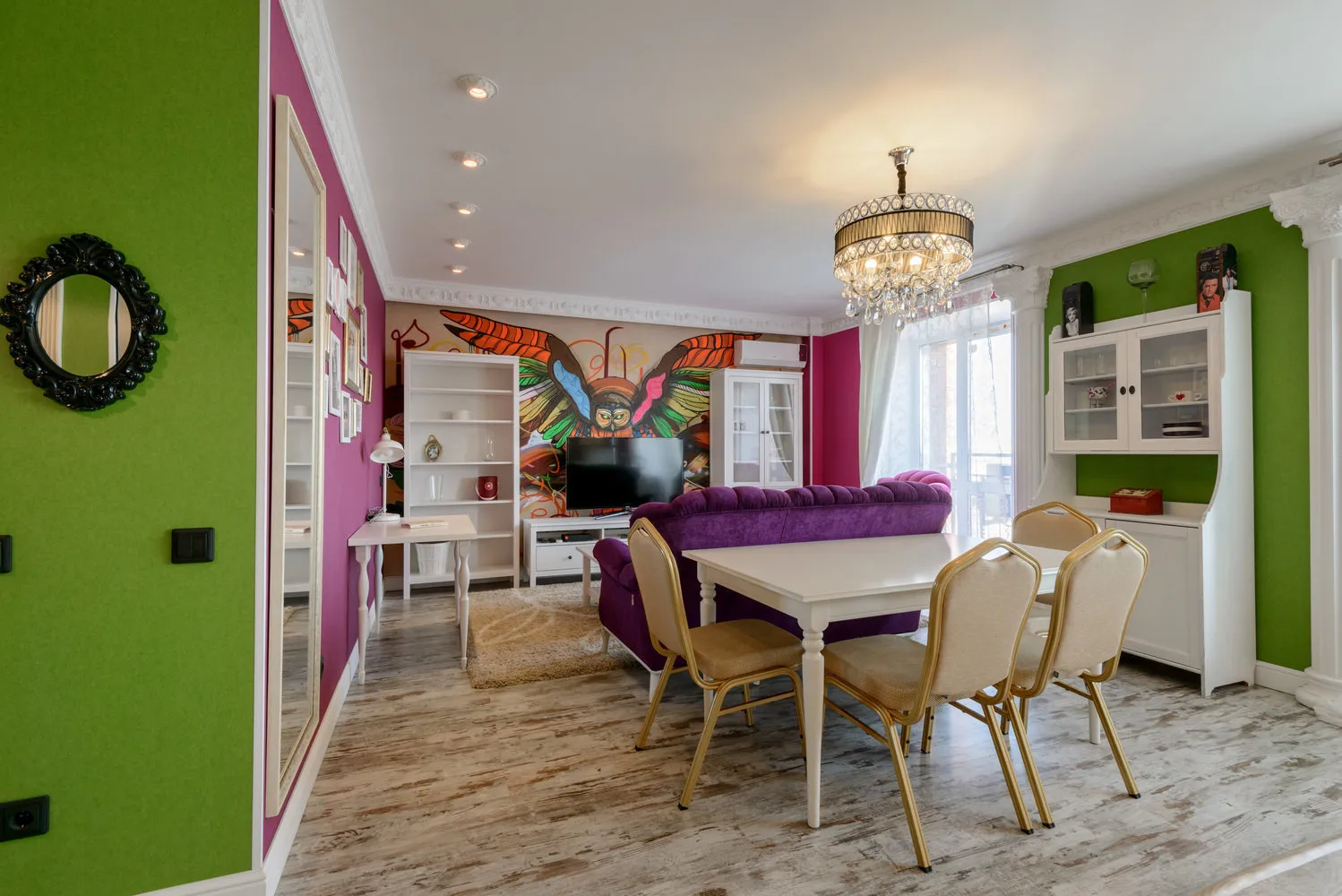
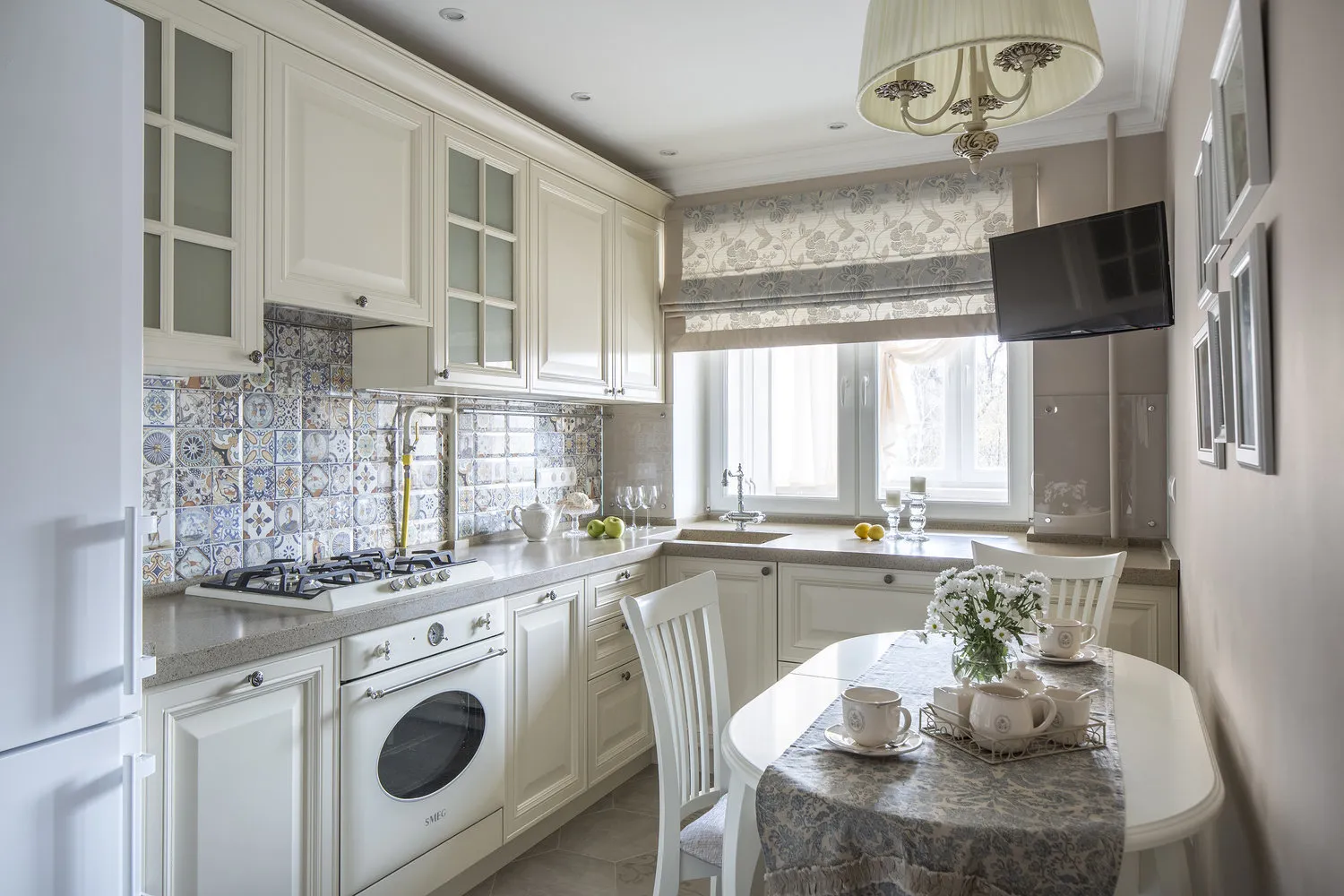
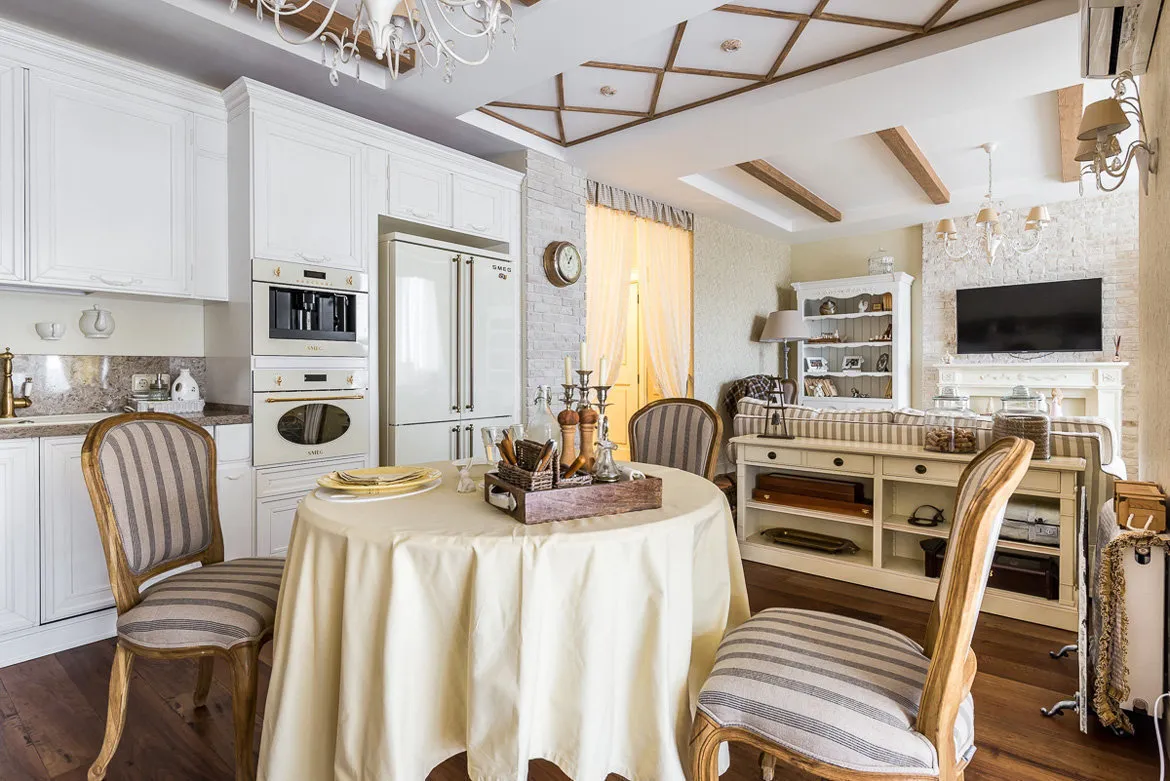
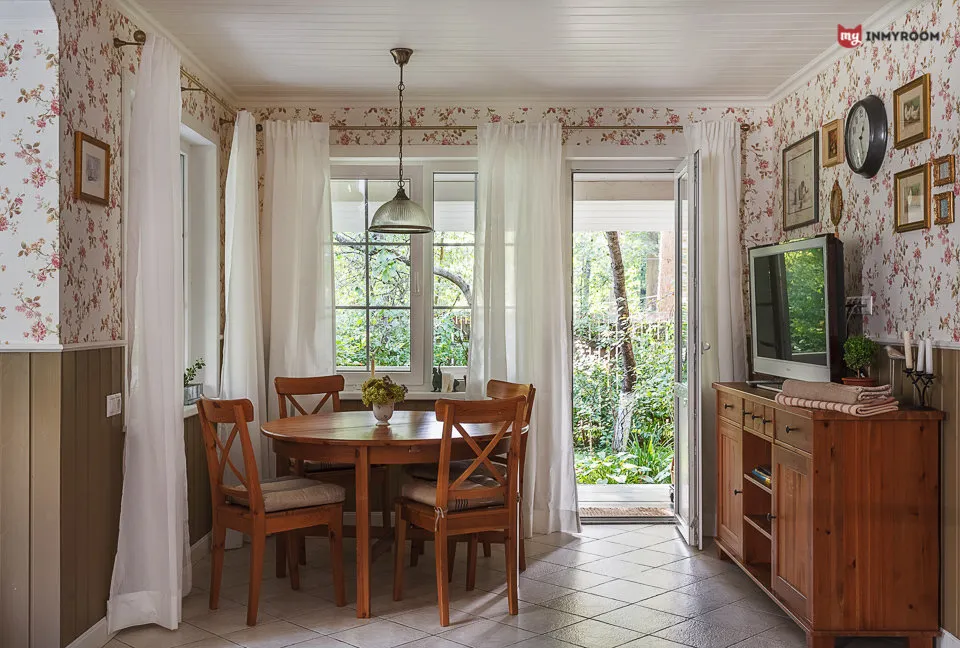
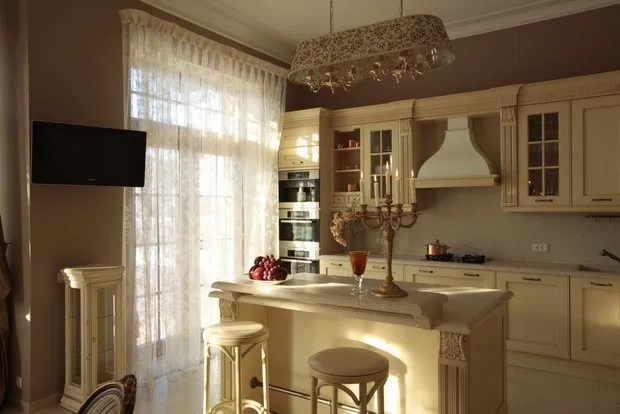
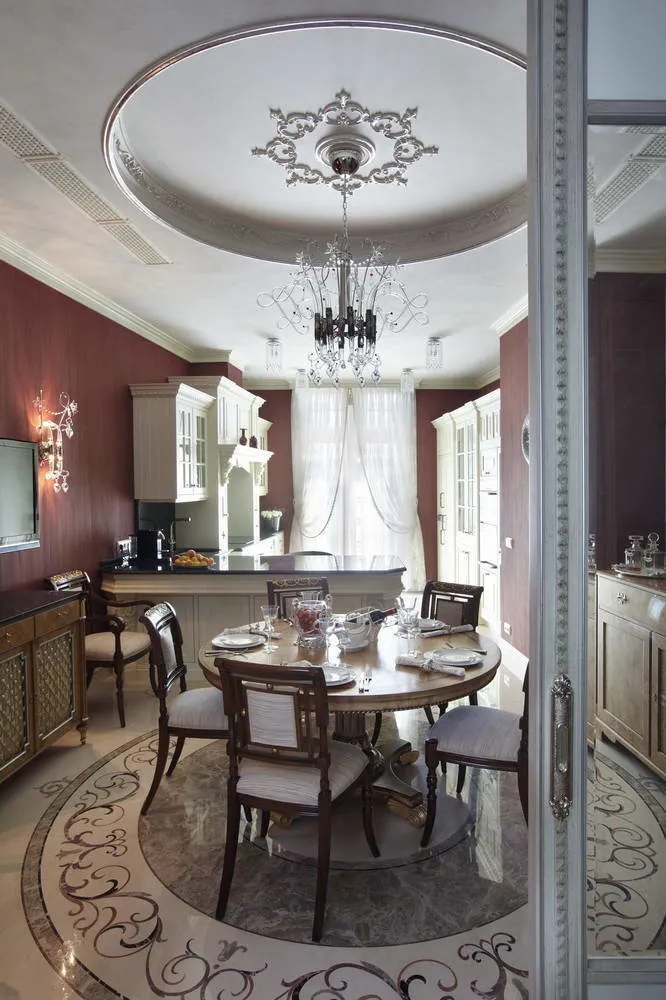
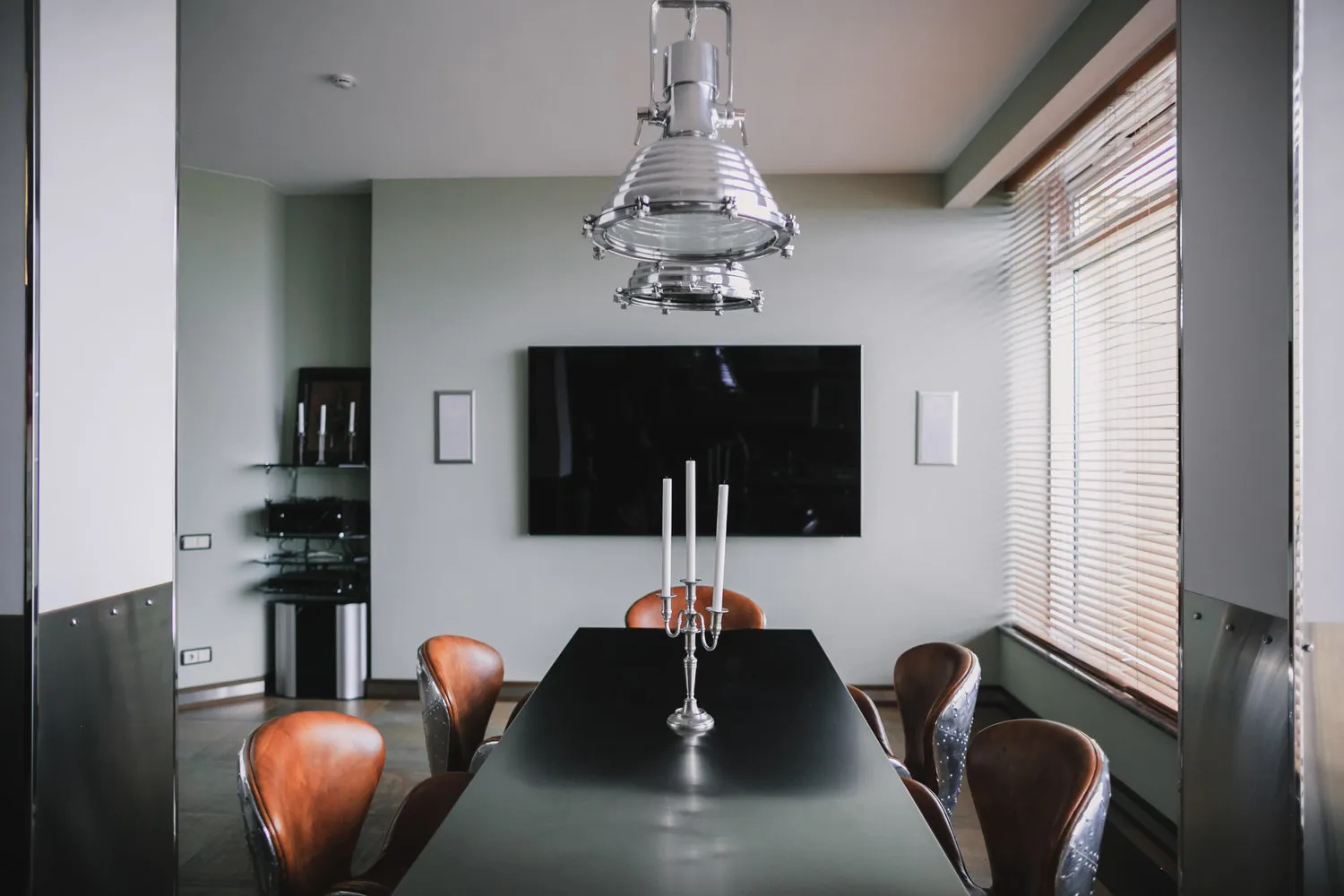
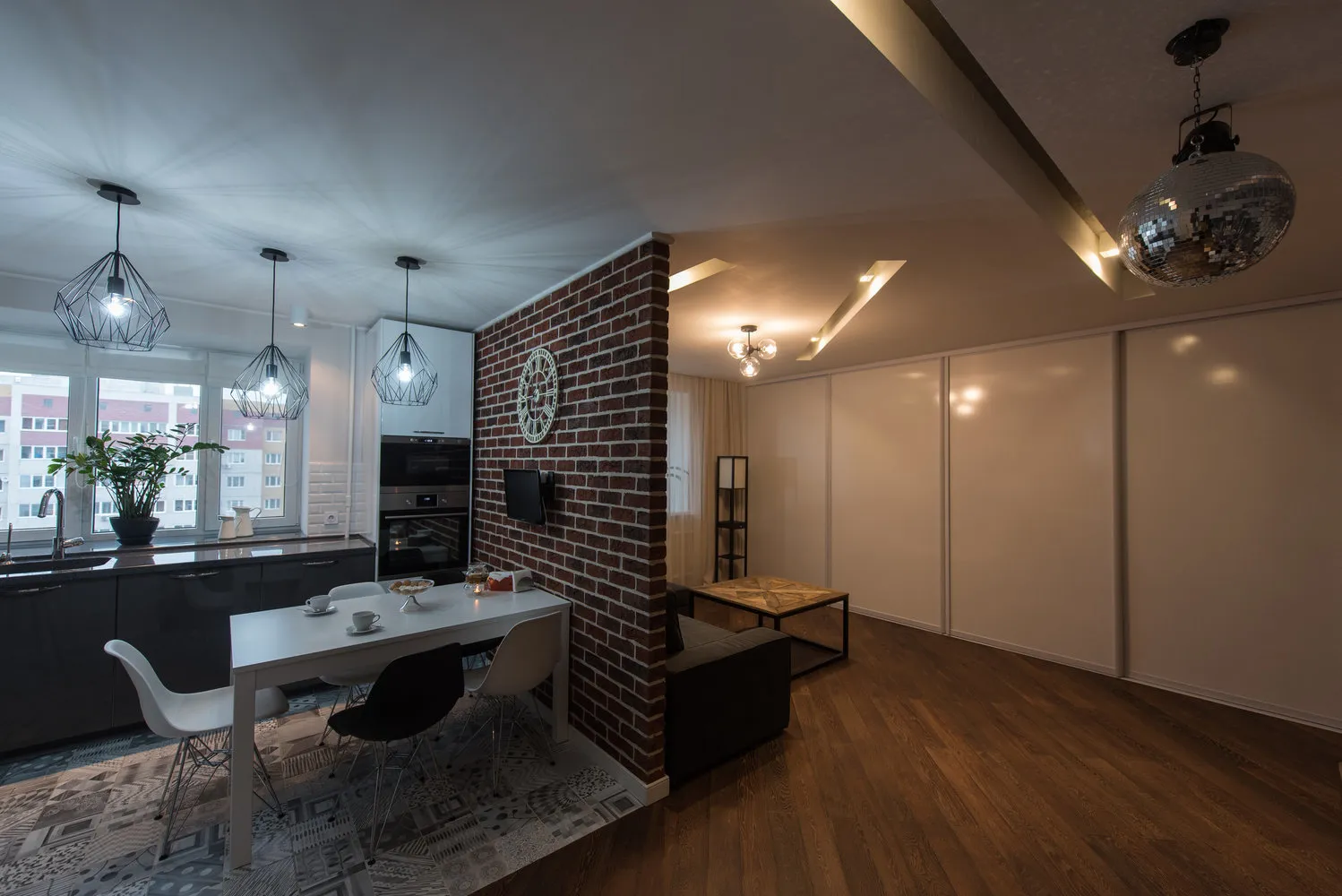
TV Placement Options on the Kitchen
Need a renovation specialist?
Find verified professionals for any repair or construction job. Post your request and get offers from local experts.
You may also like
More articles:
 Future Oven: The Most Interesting Innovation at IFA 2017 Trade Show
Future Oven: The Most Interesting Innovation at IFA 2017 Trade Show The Only: "Ornate House" on Leningradsky Prospect
The Only: "Ornate House" on Leningradsky Prospect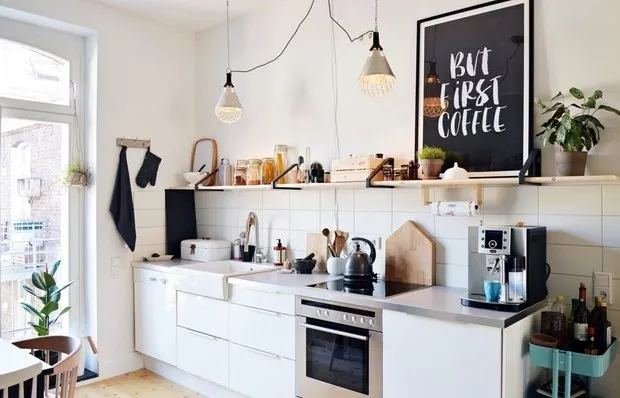 12 Useful Tips for Owners of Small Kitchens
12 Useful Tips for Owners of Small Kitchens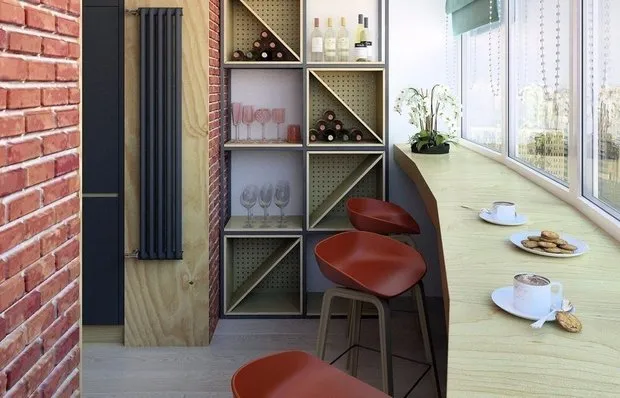 6 Common Mistakes in Balcony Insulation
6 Common Mistakes in Balcony Insulation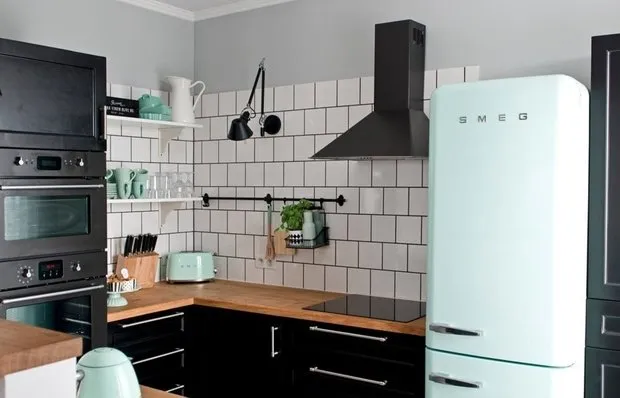 They Ruin the Design: 6 Mistakes When Installing Household Appliances
They Ruin the Design: 6 Mistakes When Installing Household Appliances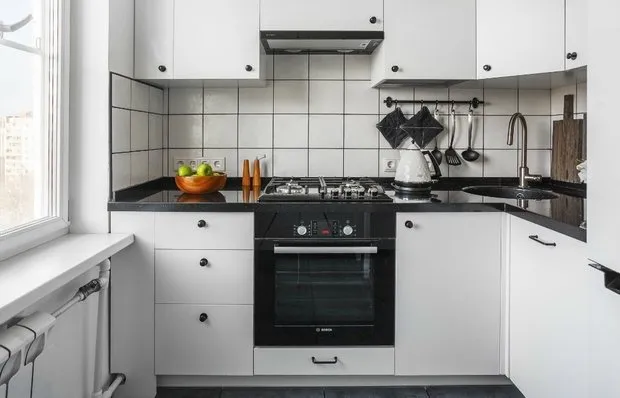 10 Mistakes in Small Kitchen Design
10 Mistakes in Small Kitchen Design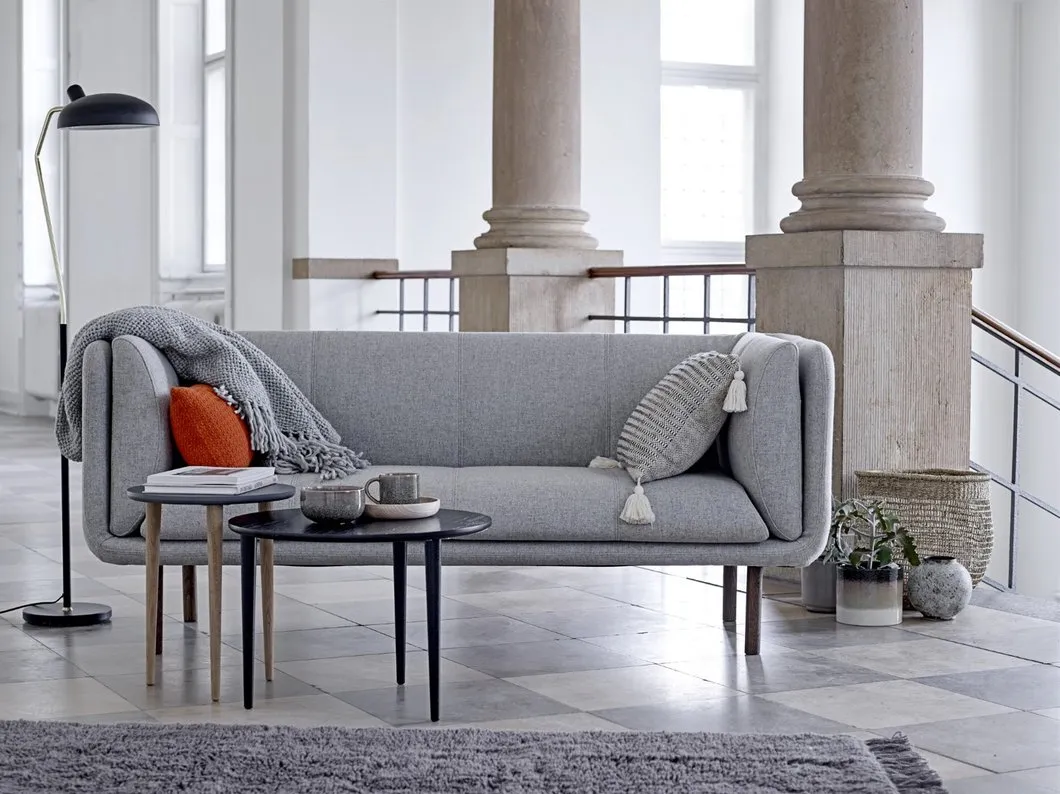 Instead of Hygge: What Is Lagom and How to Add Swedish Wellbeing to Your Life
Instead of Hygge: What Is Lagom and How to Add Swedish Wellbeing to Your Life Editor's Choice: Designer Kitchen Accessories
Editor's Choice: Designer Kitchen Accessories